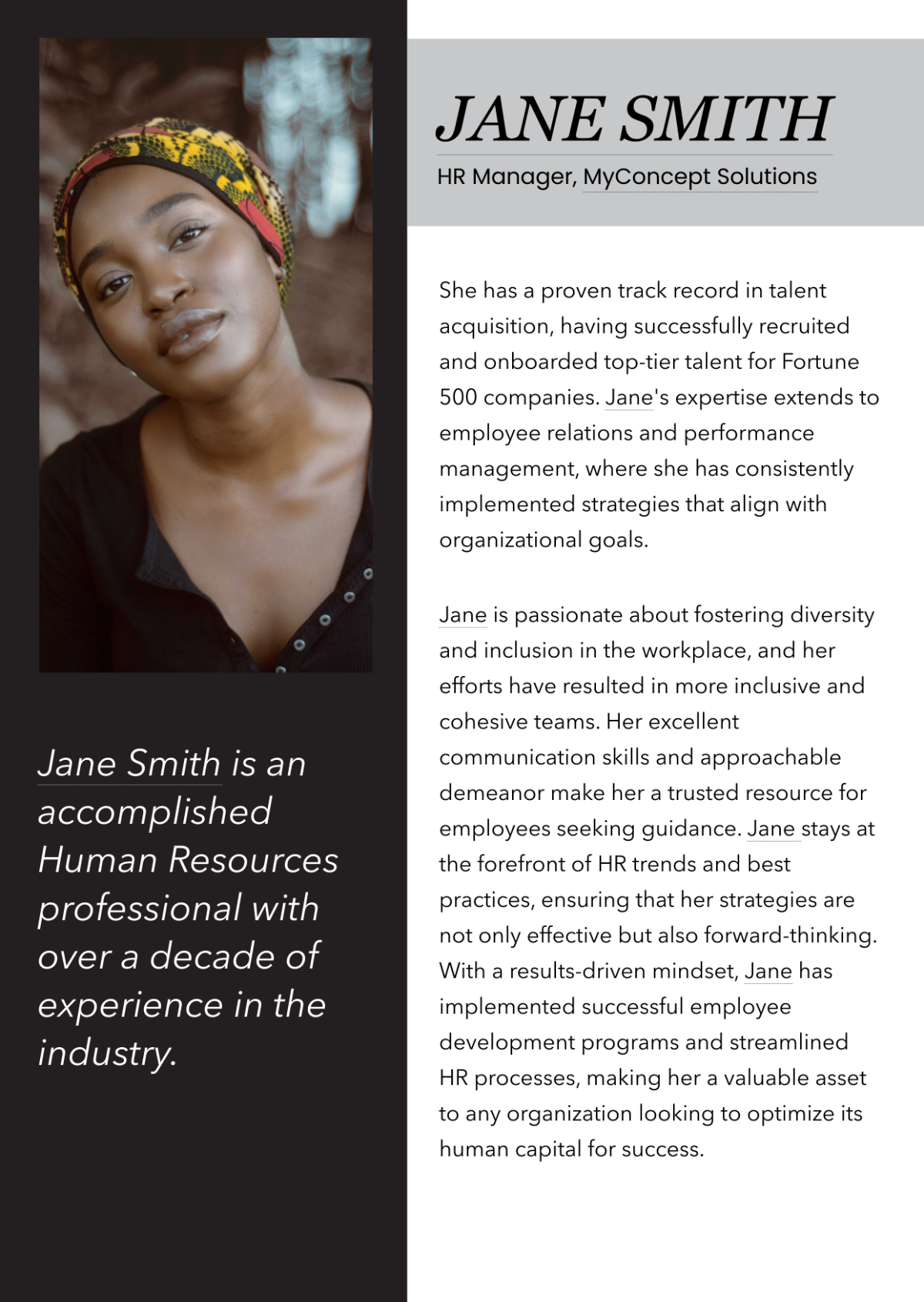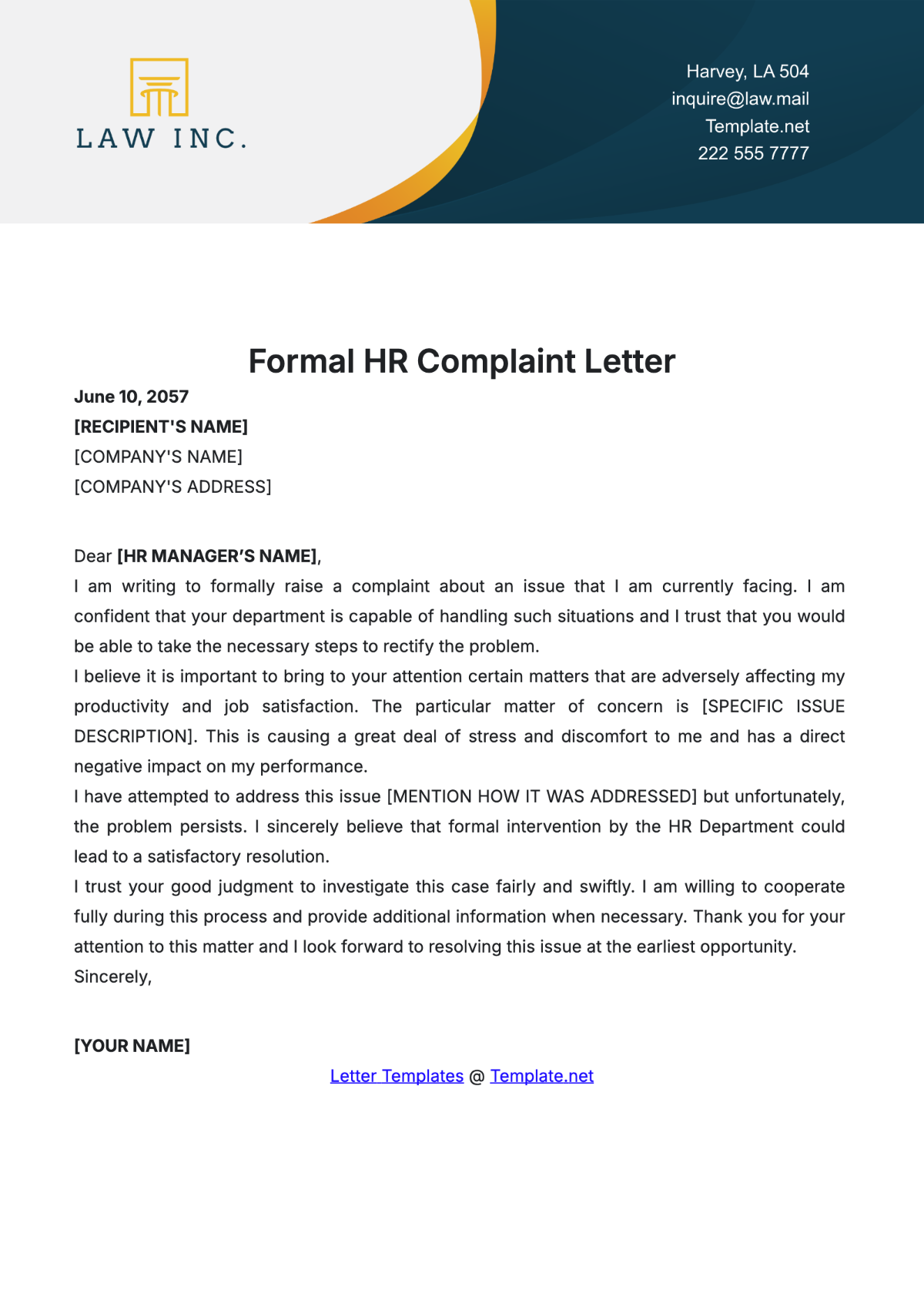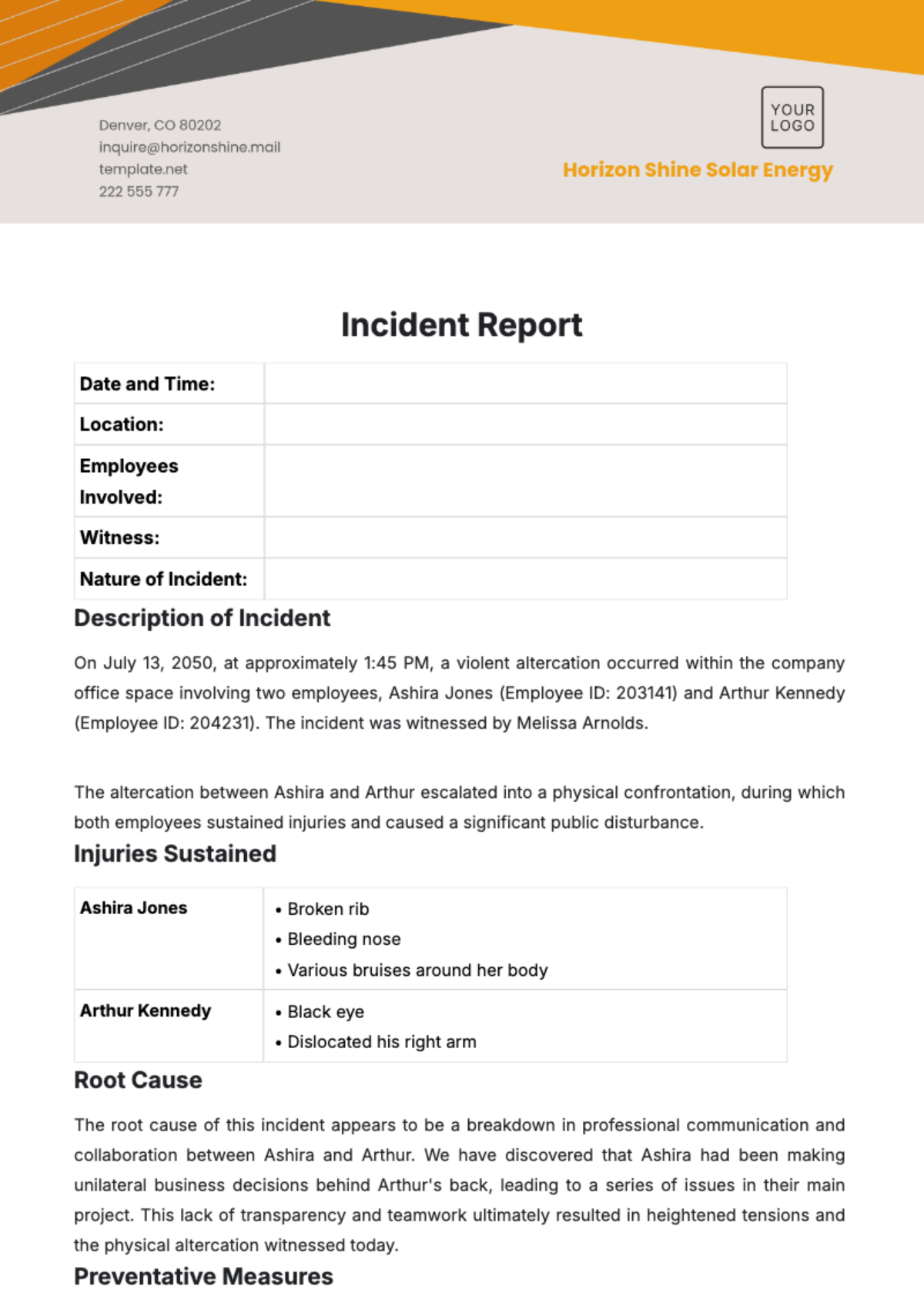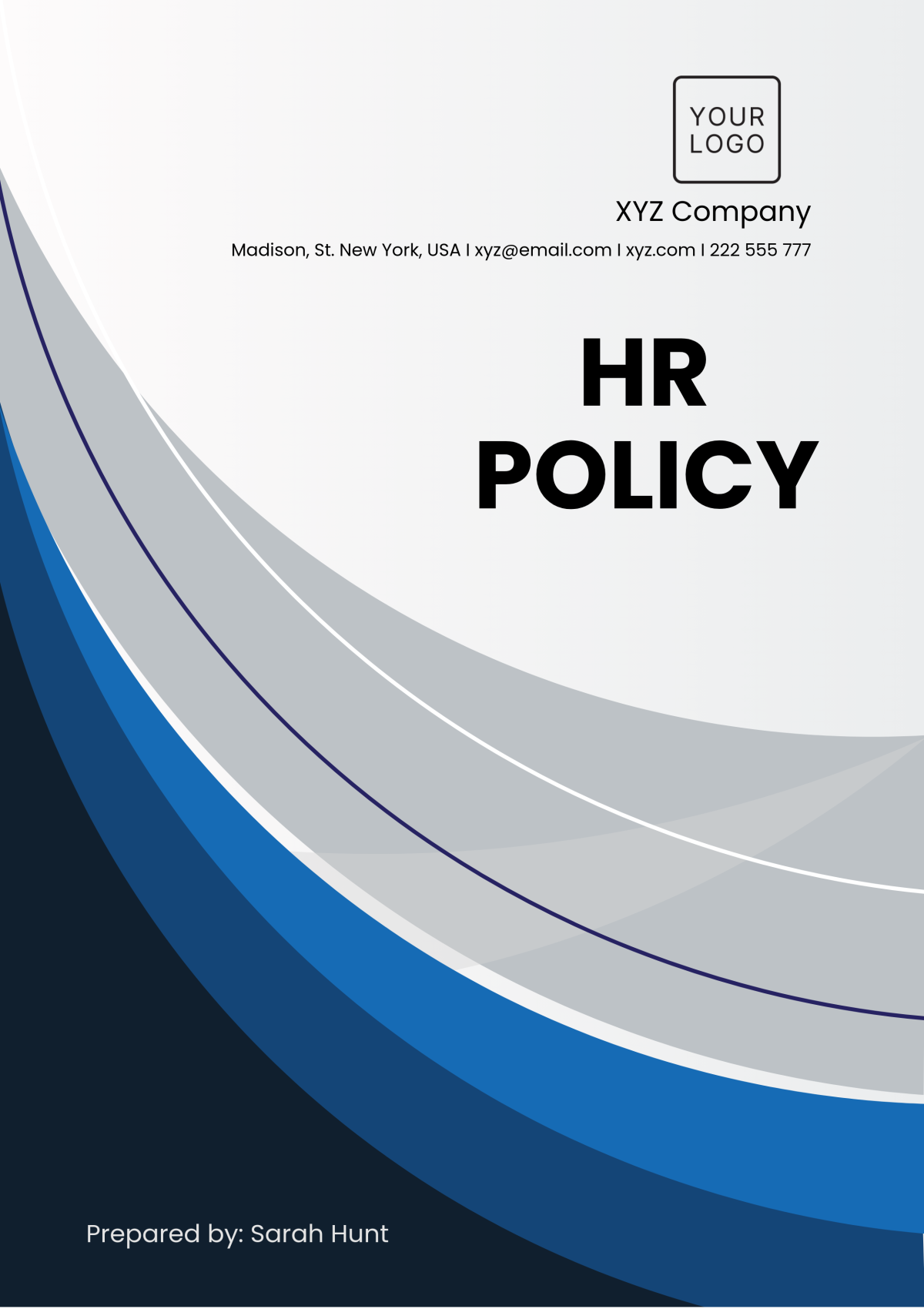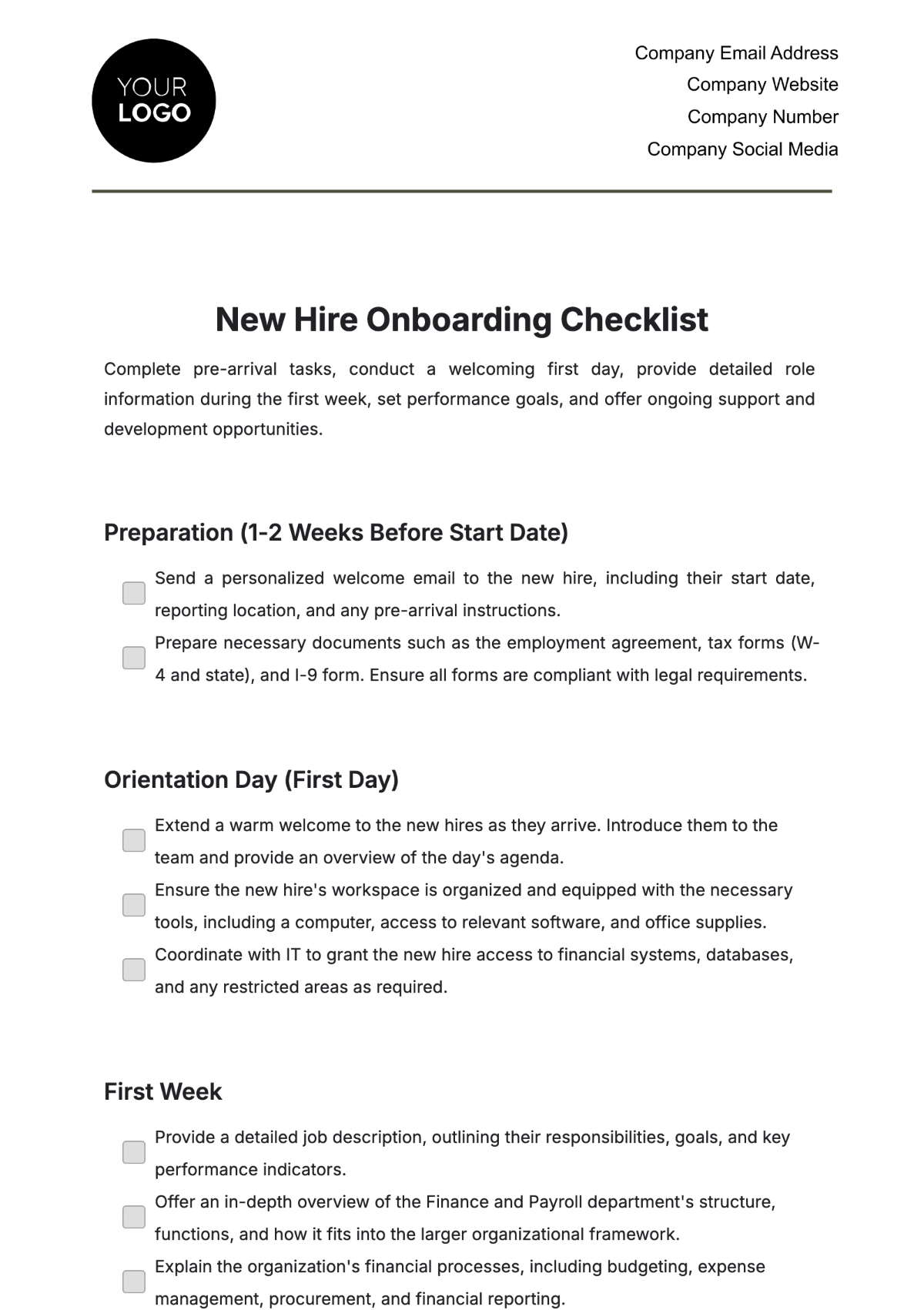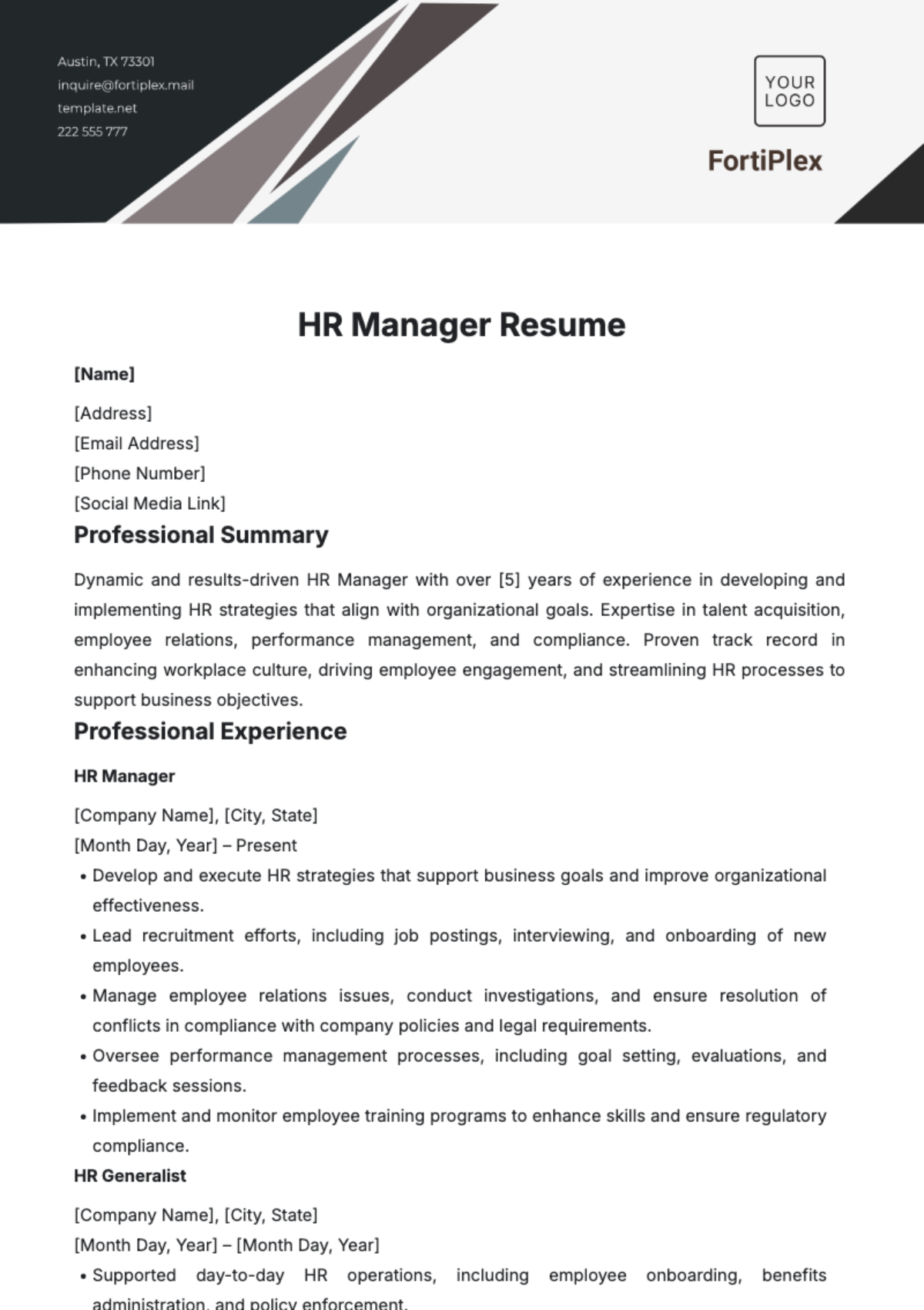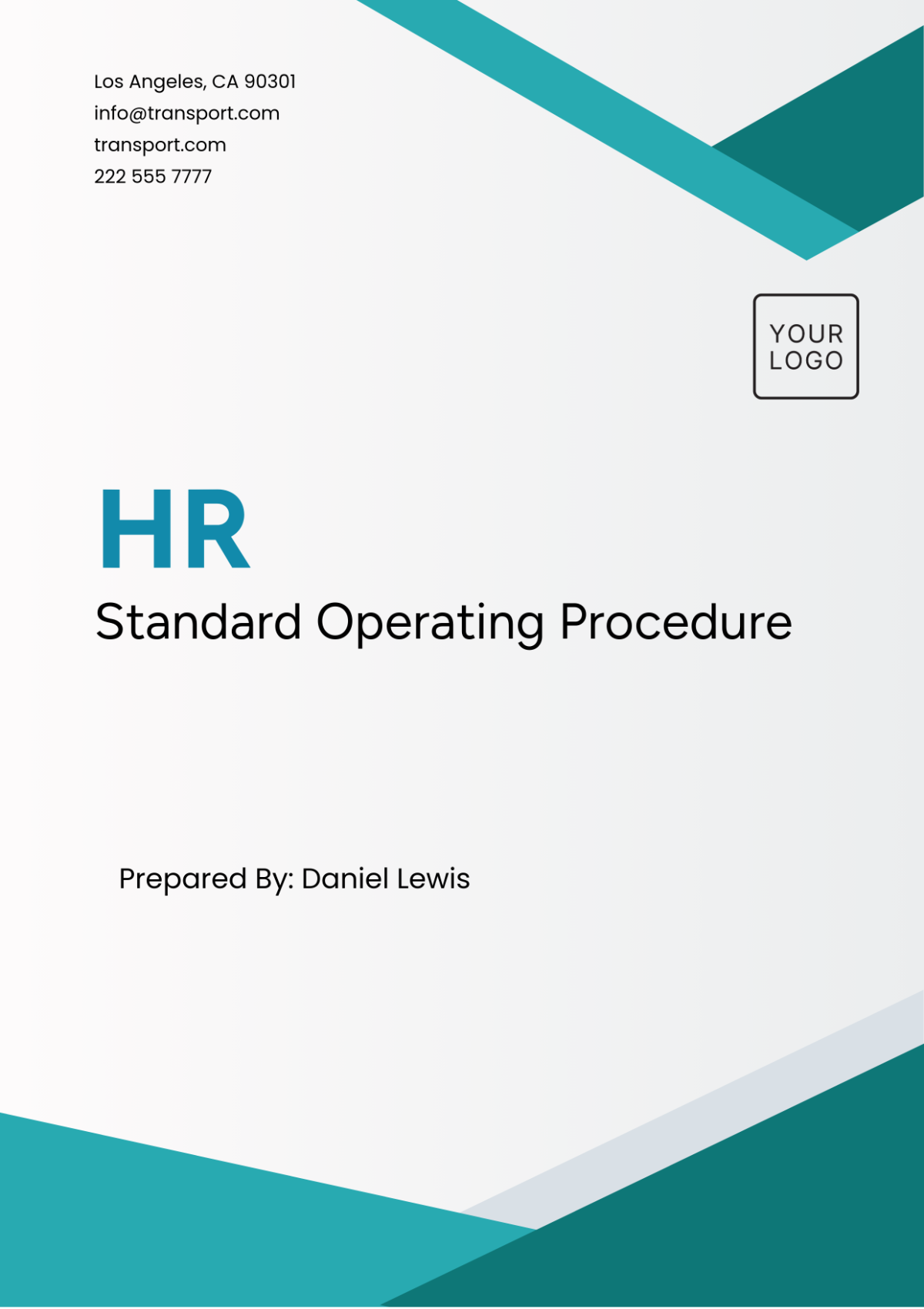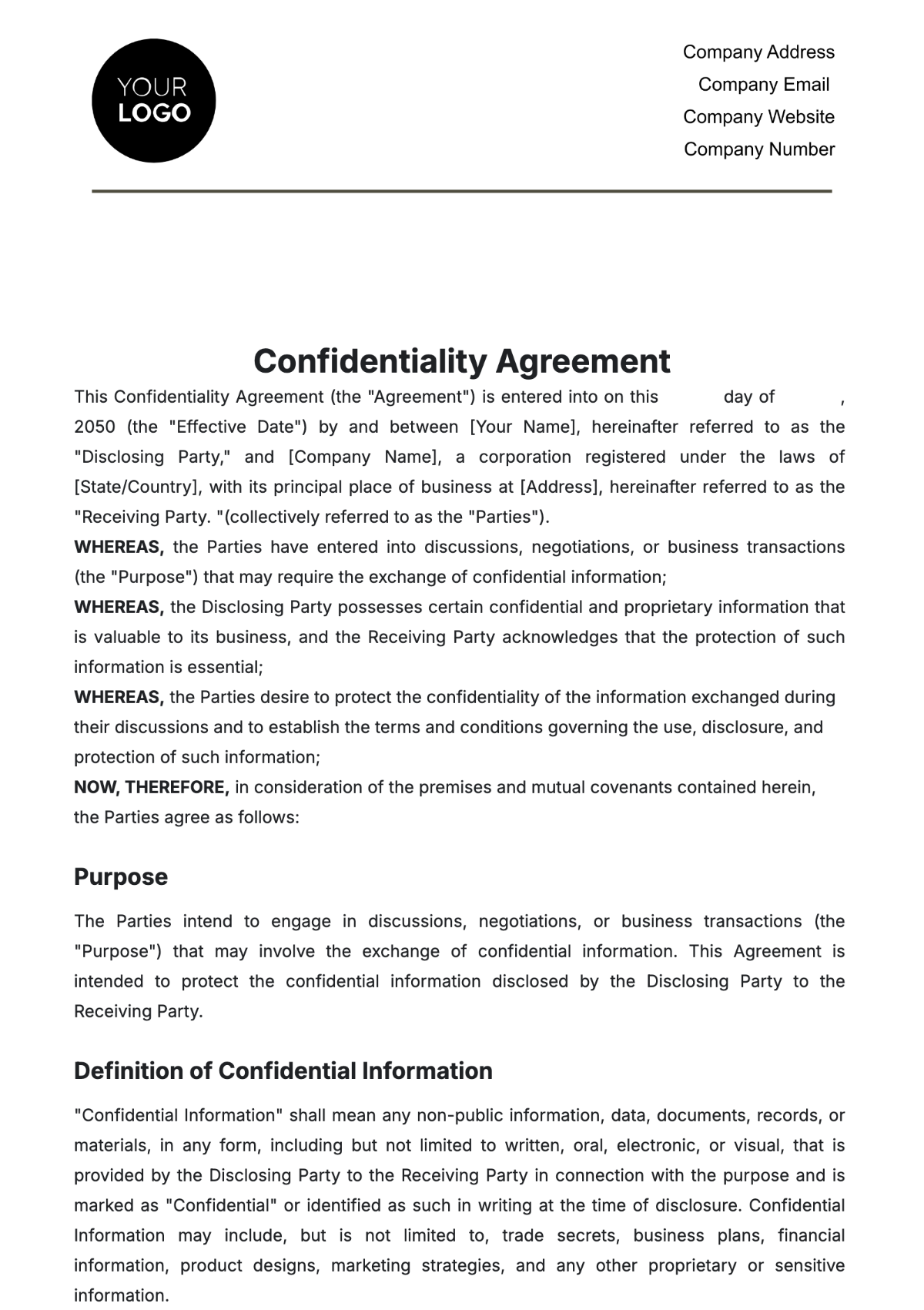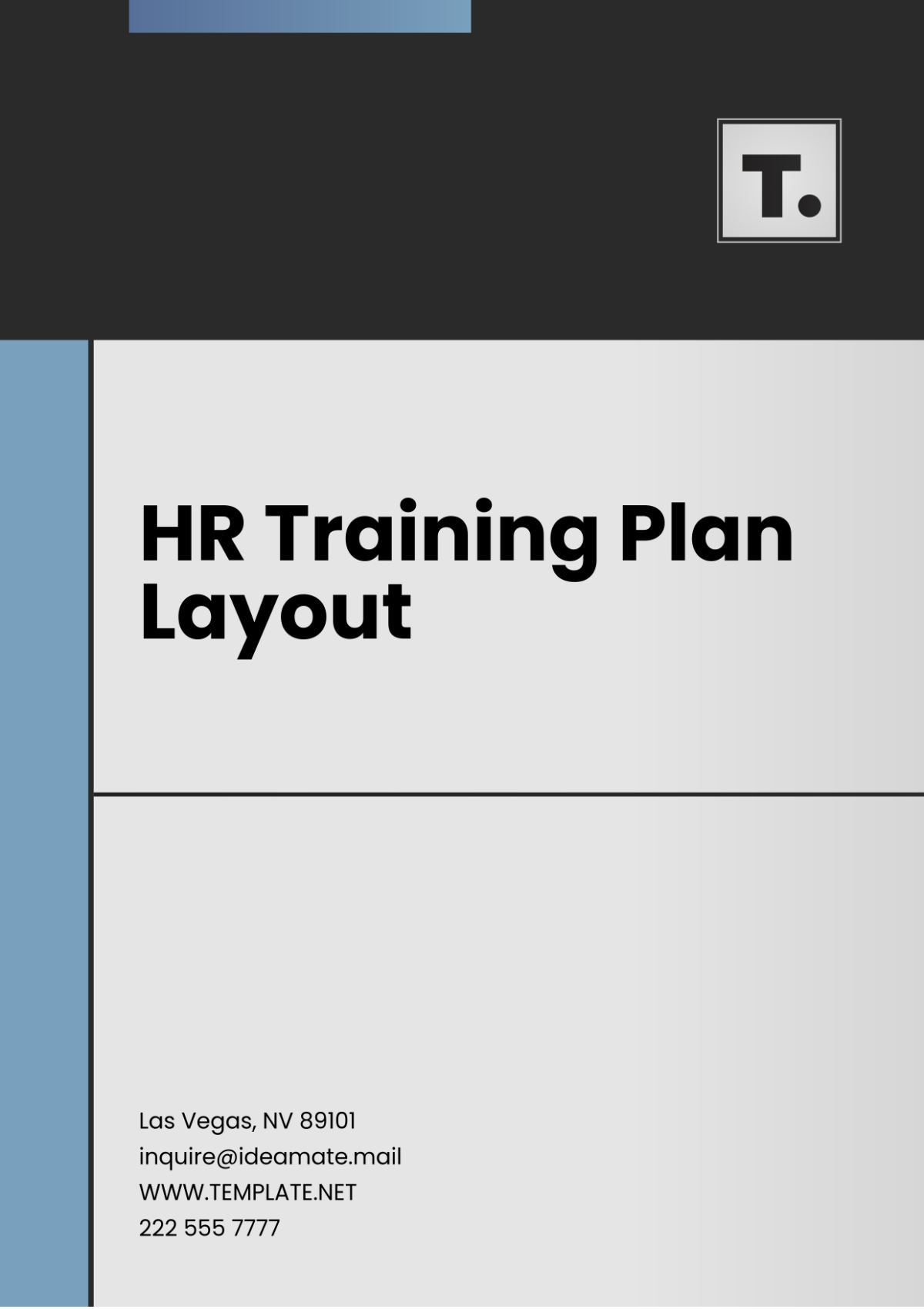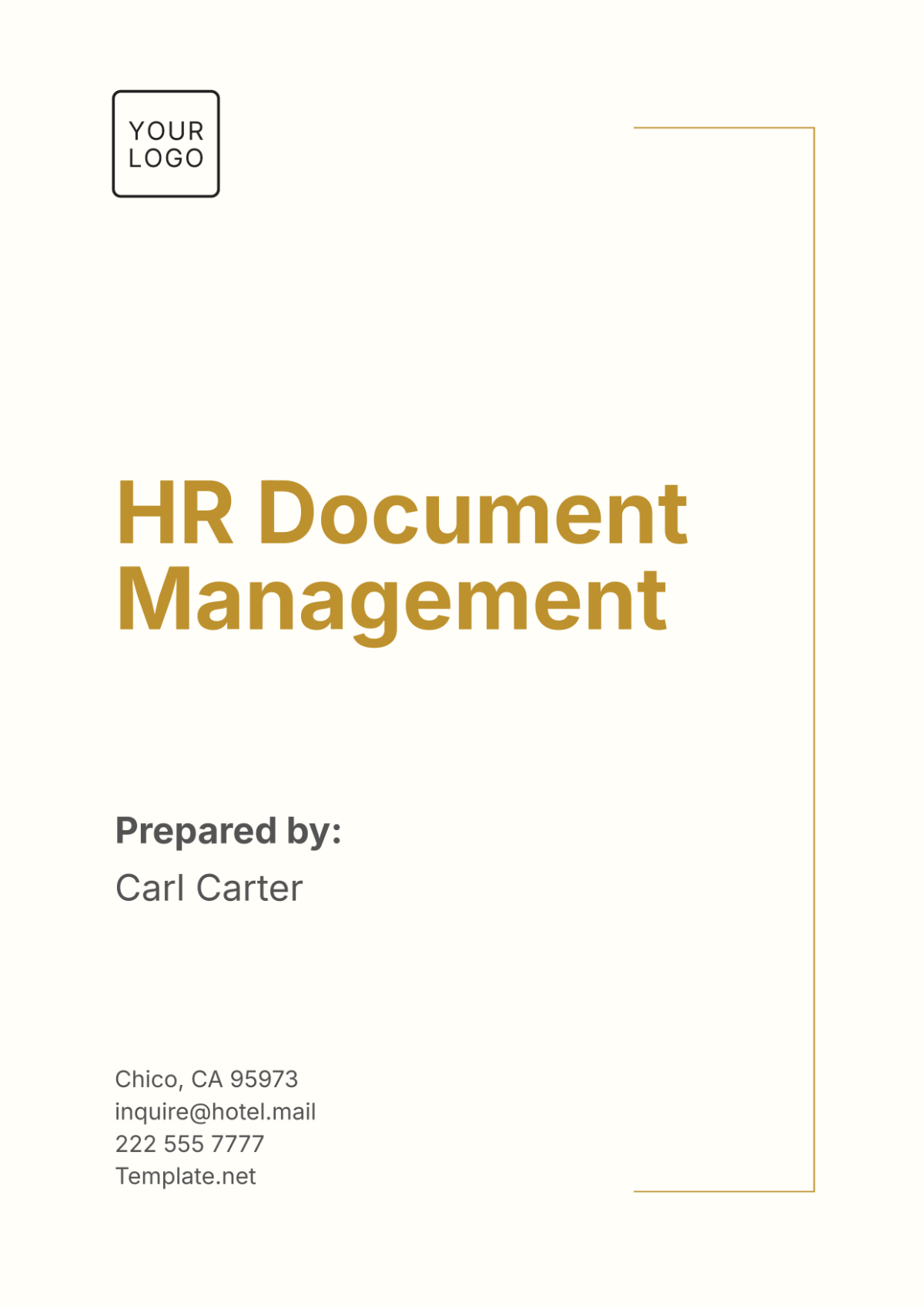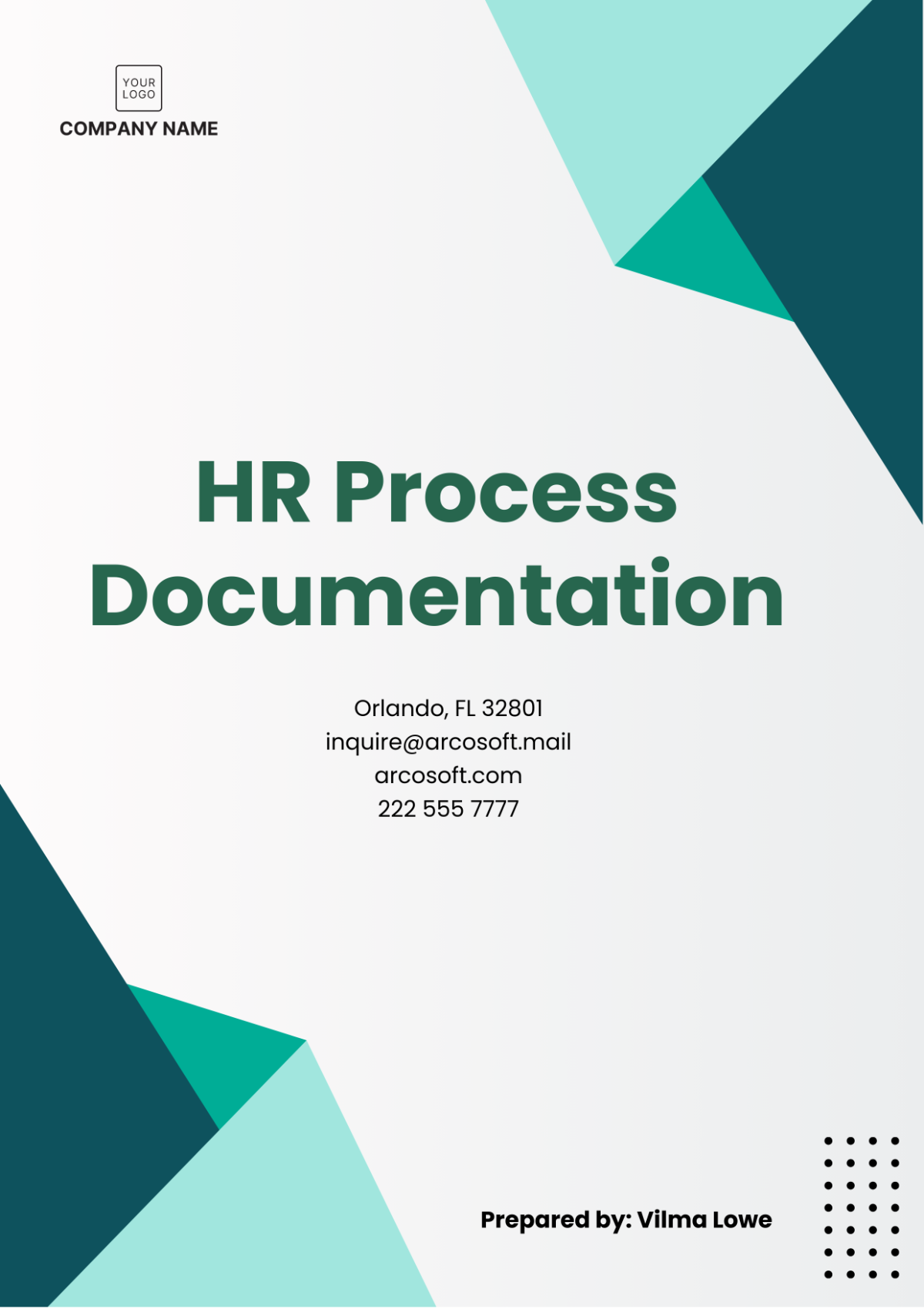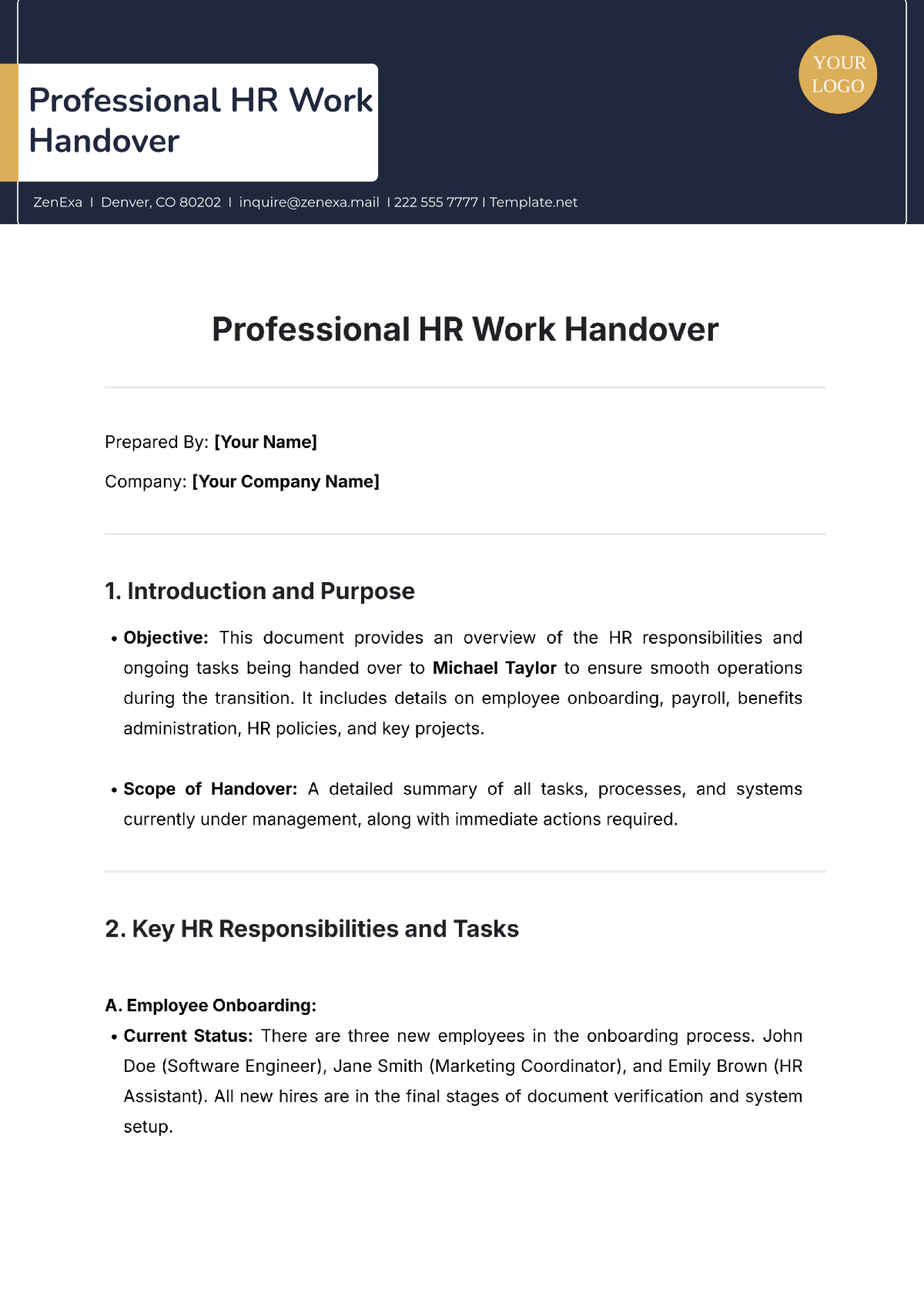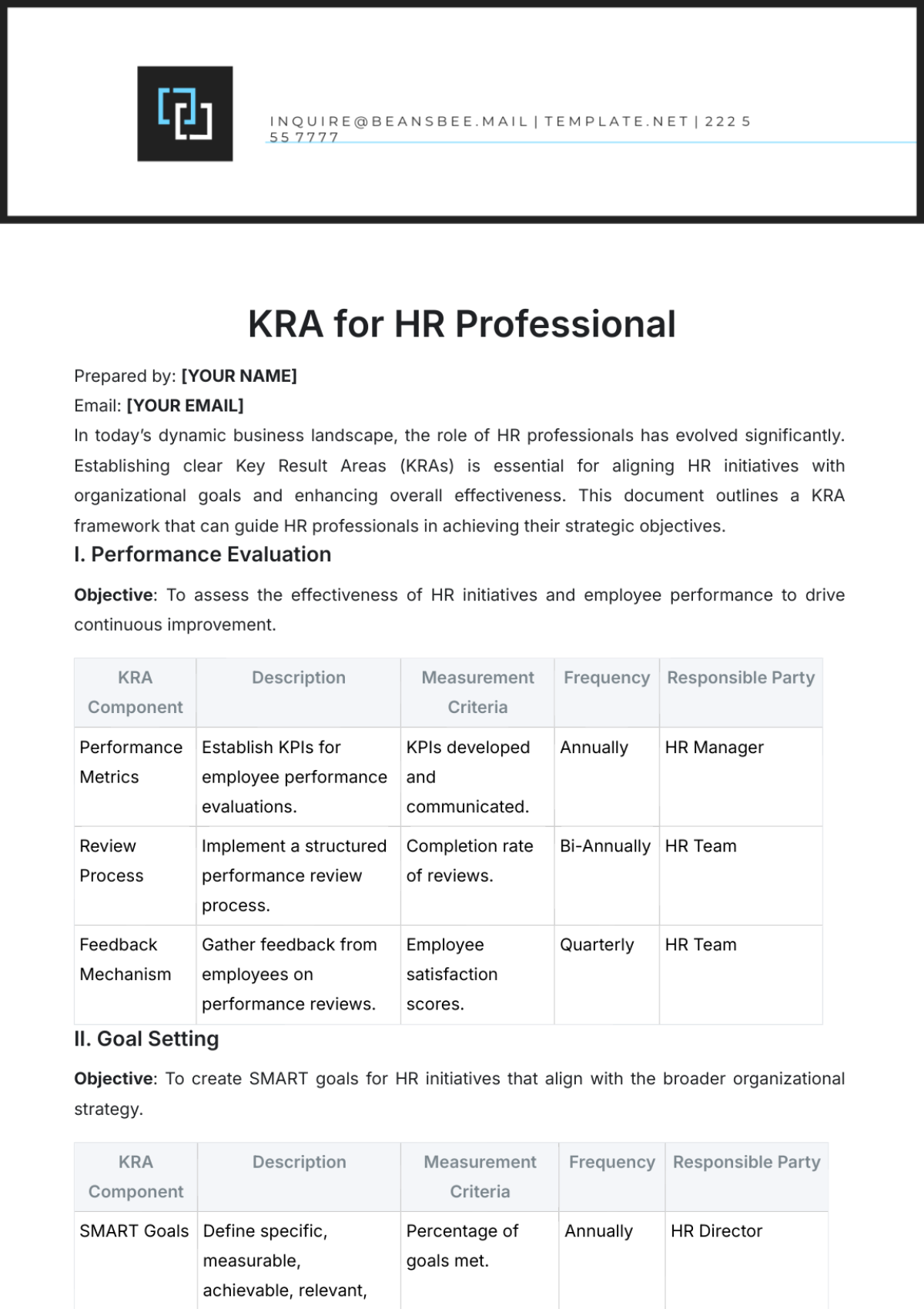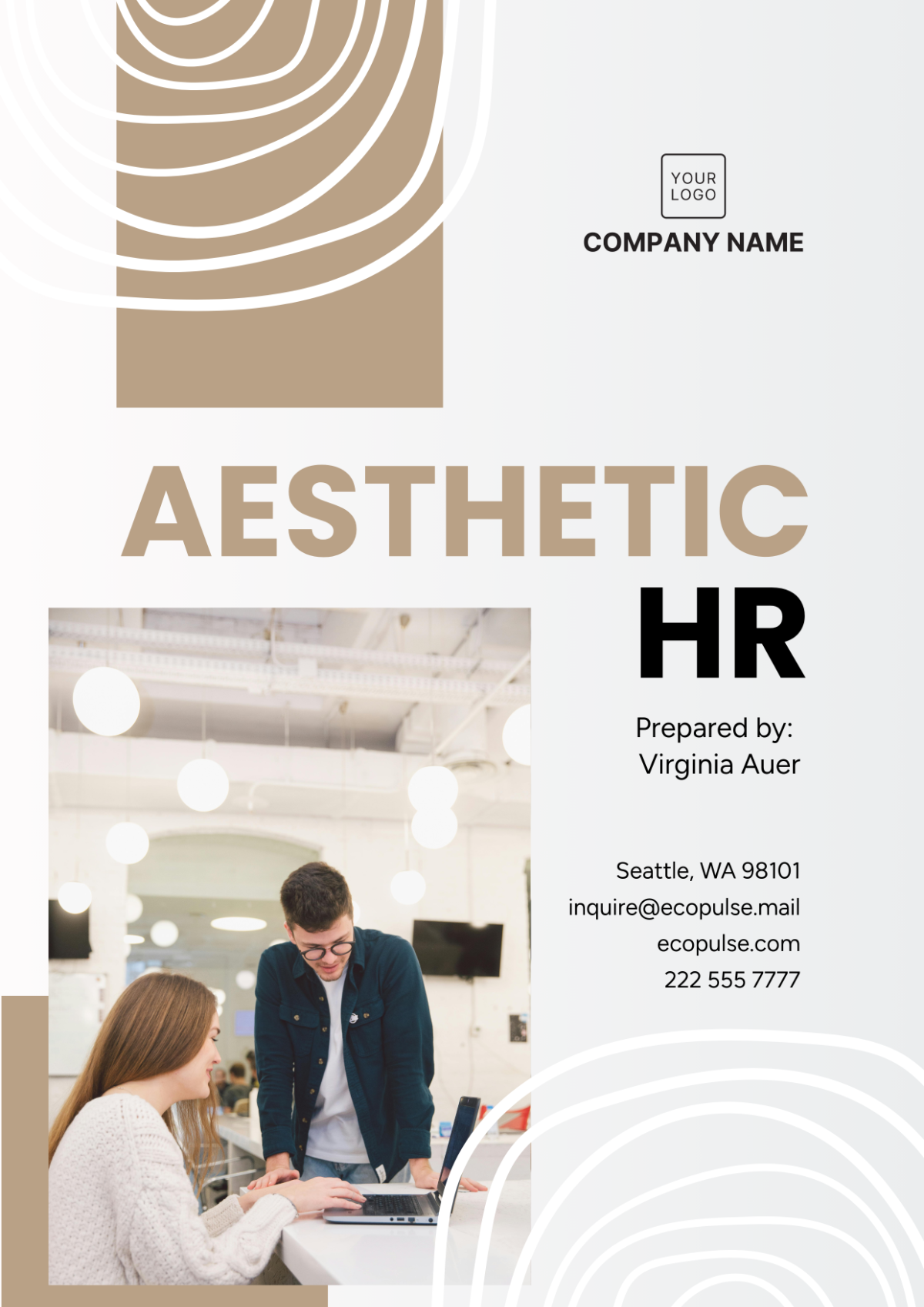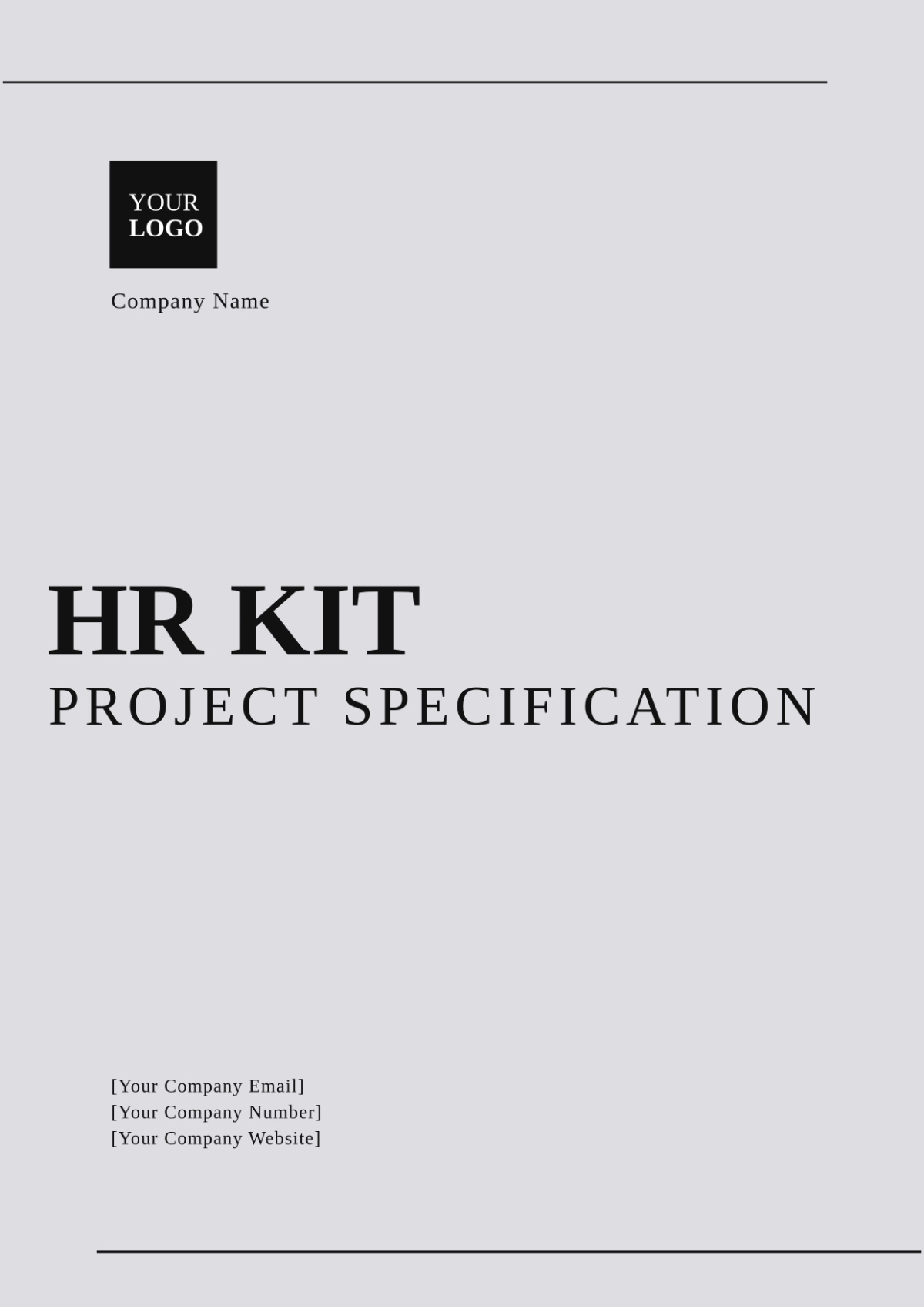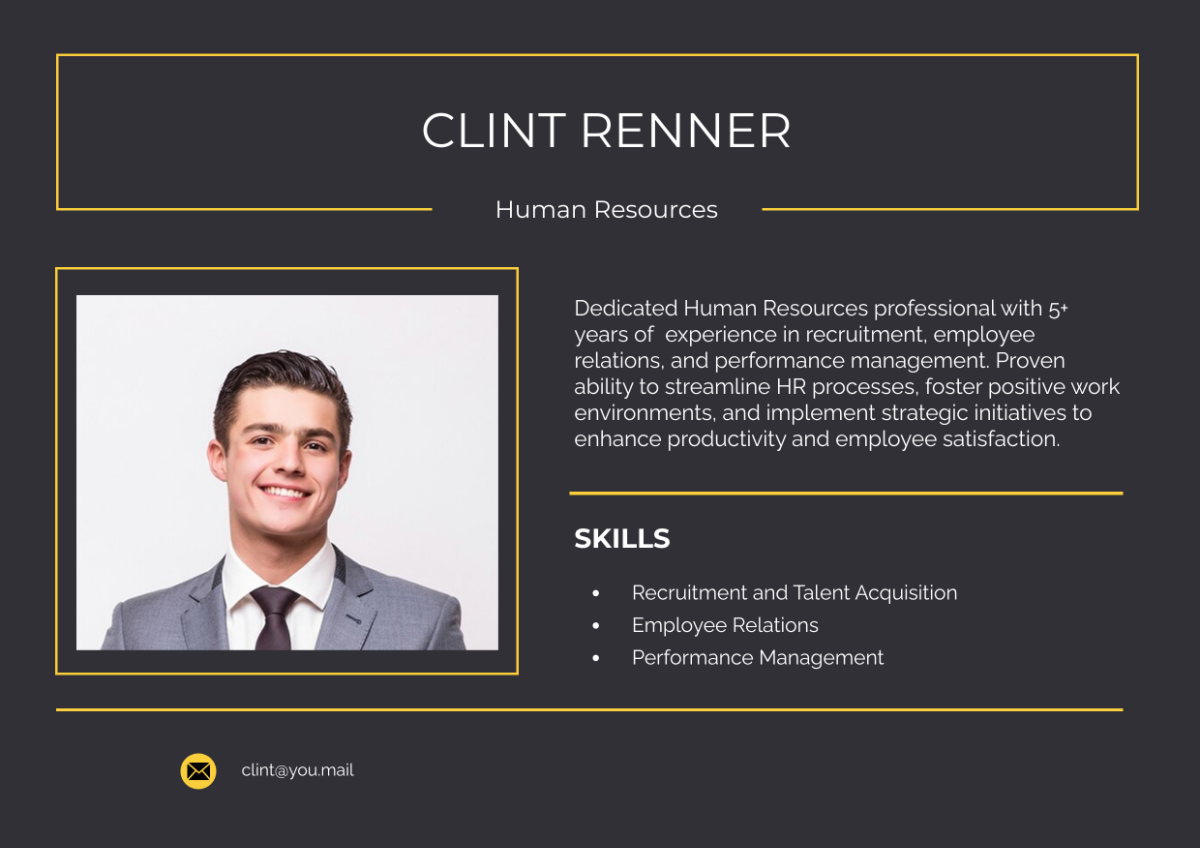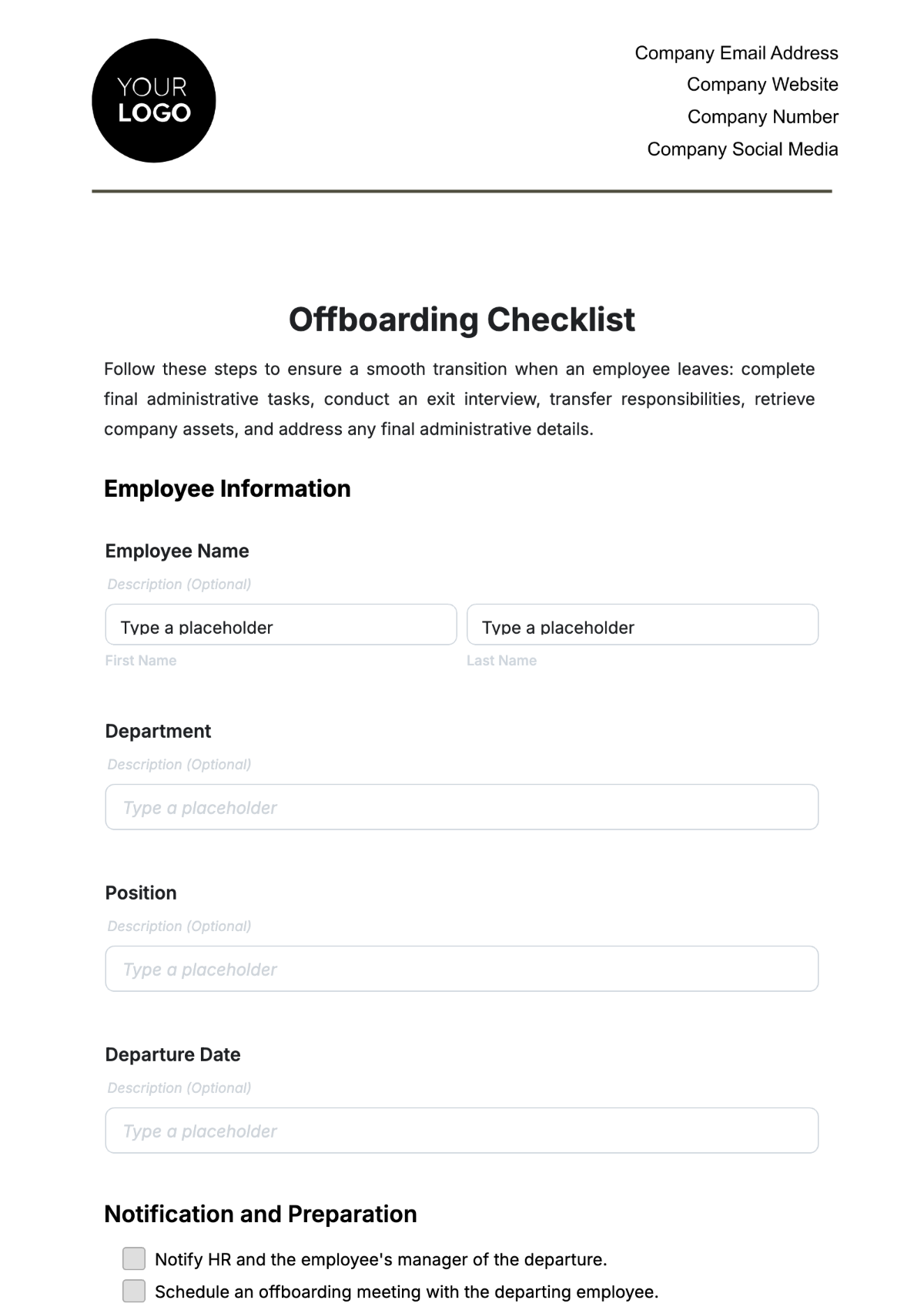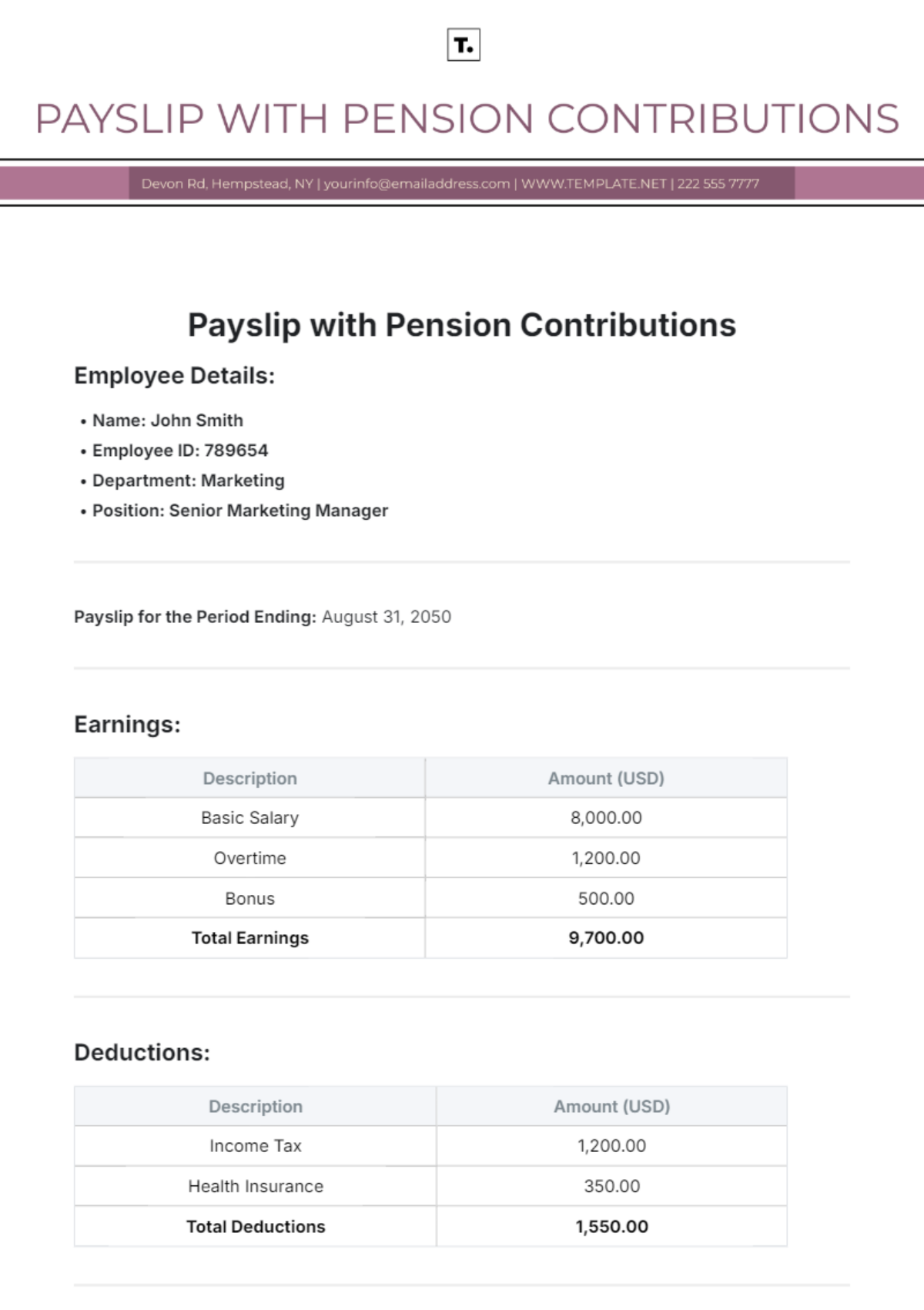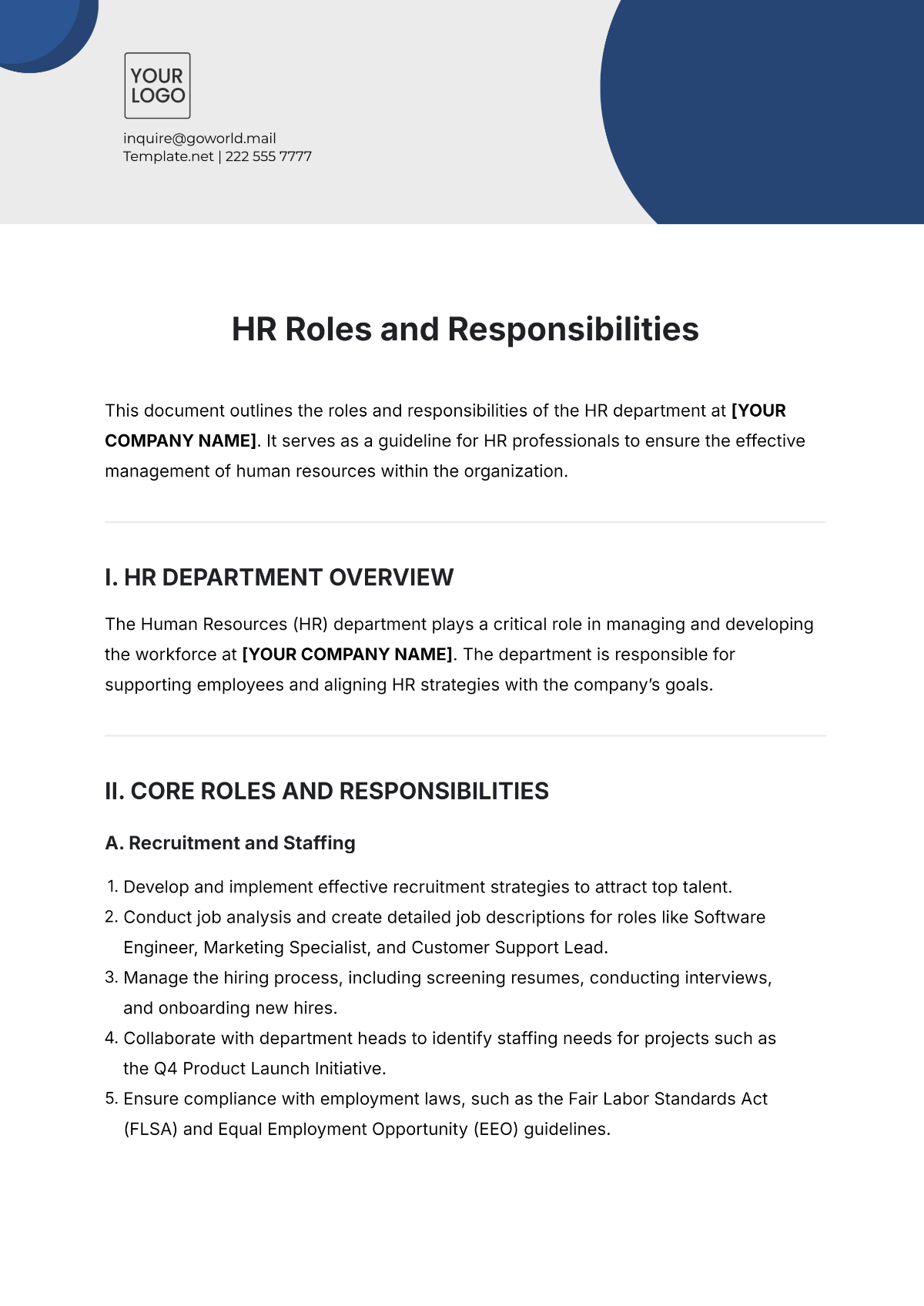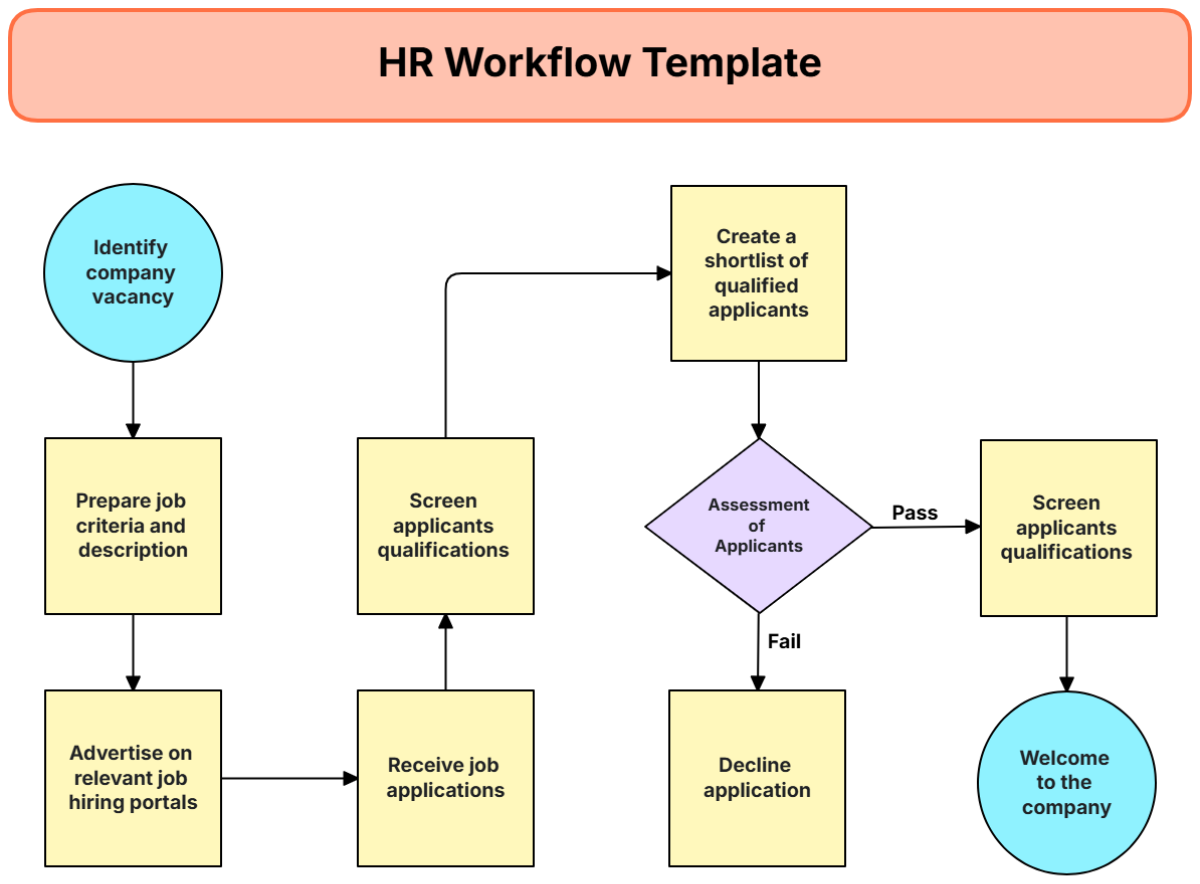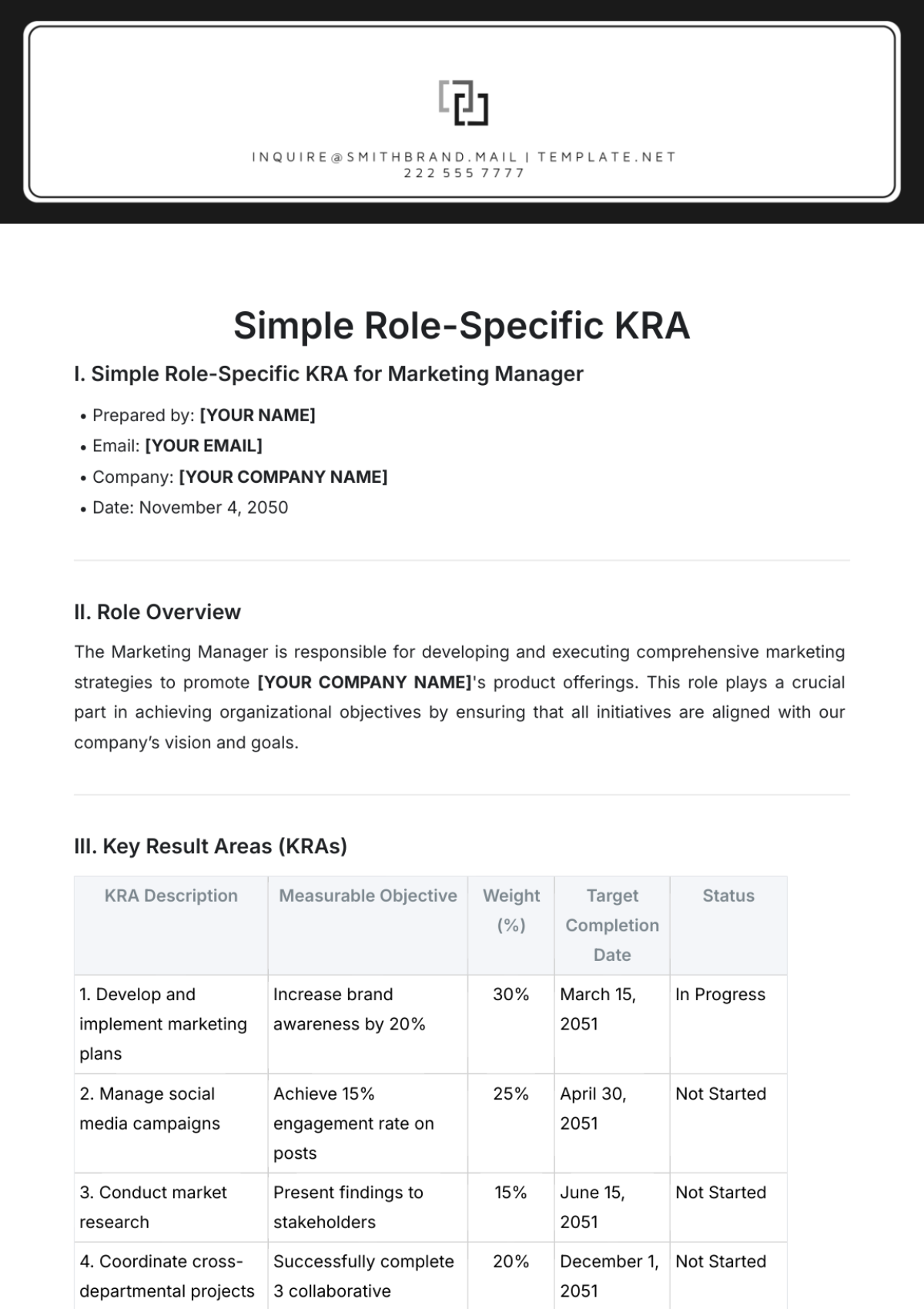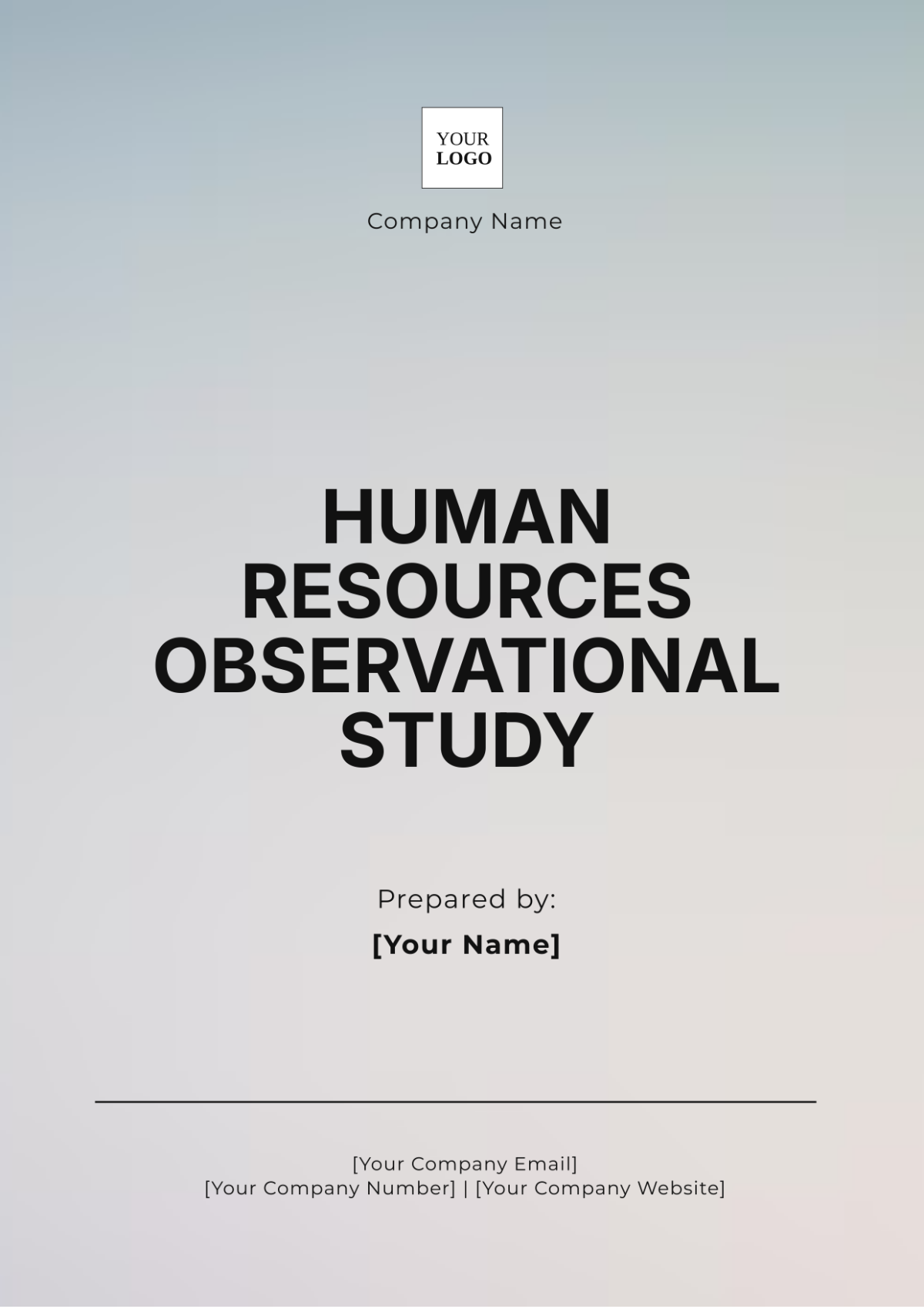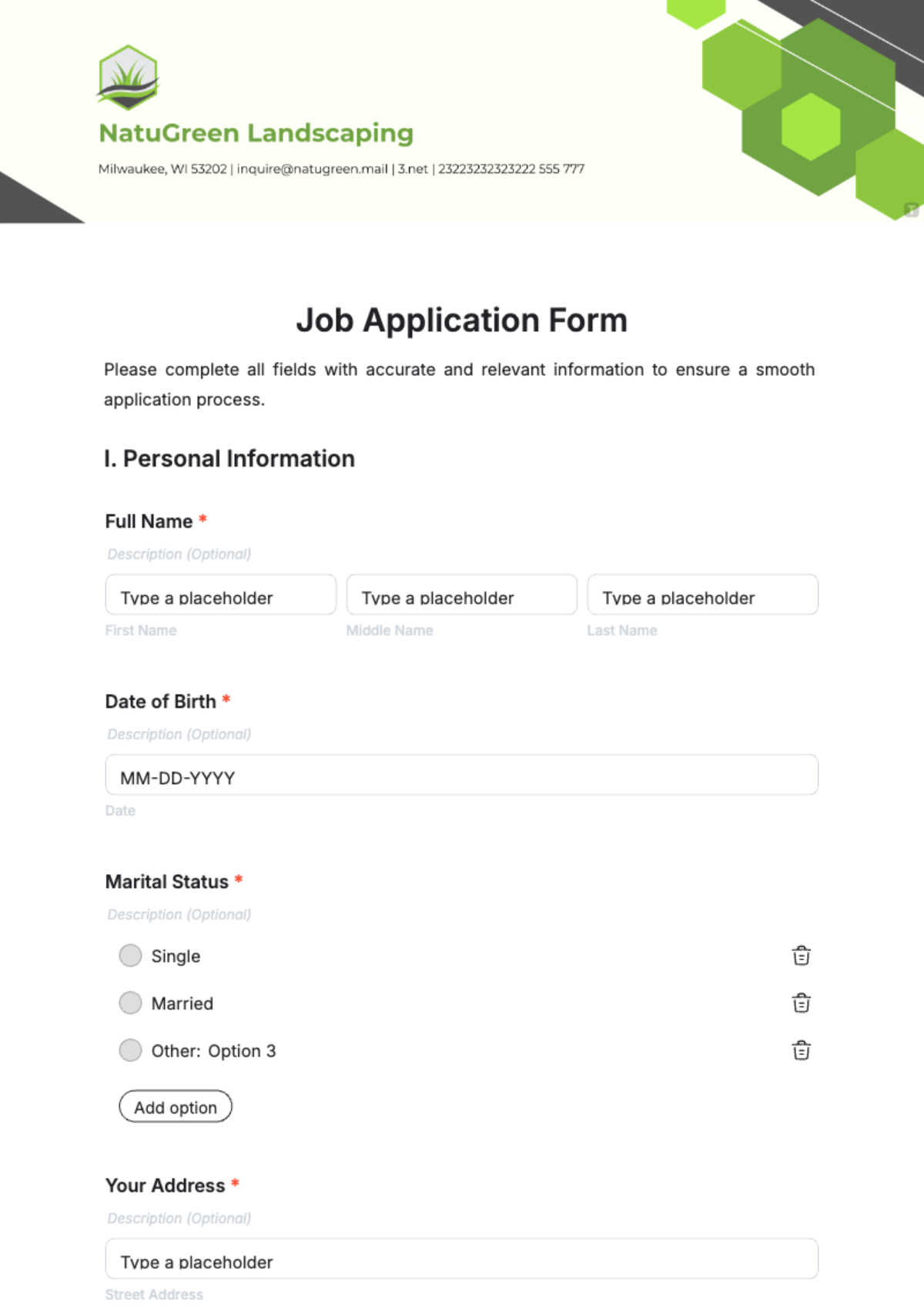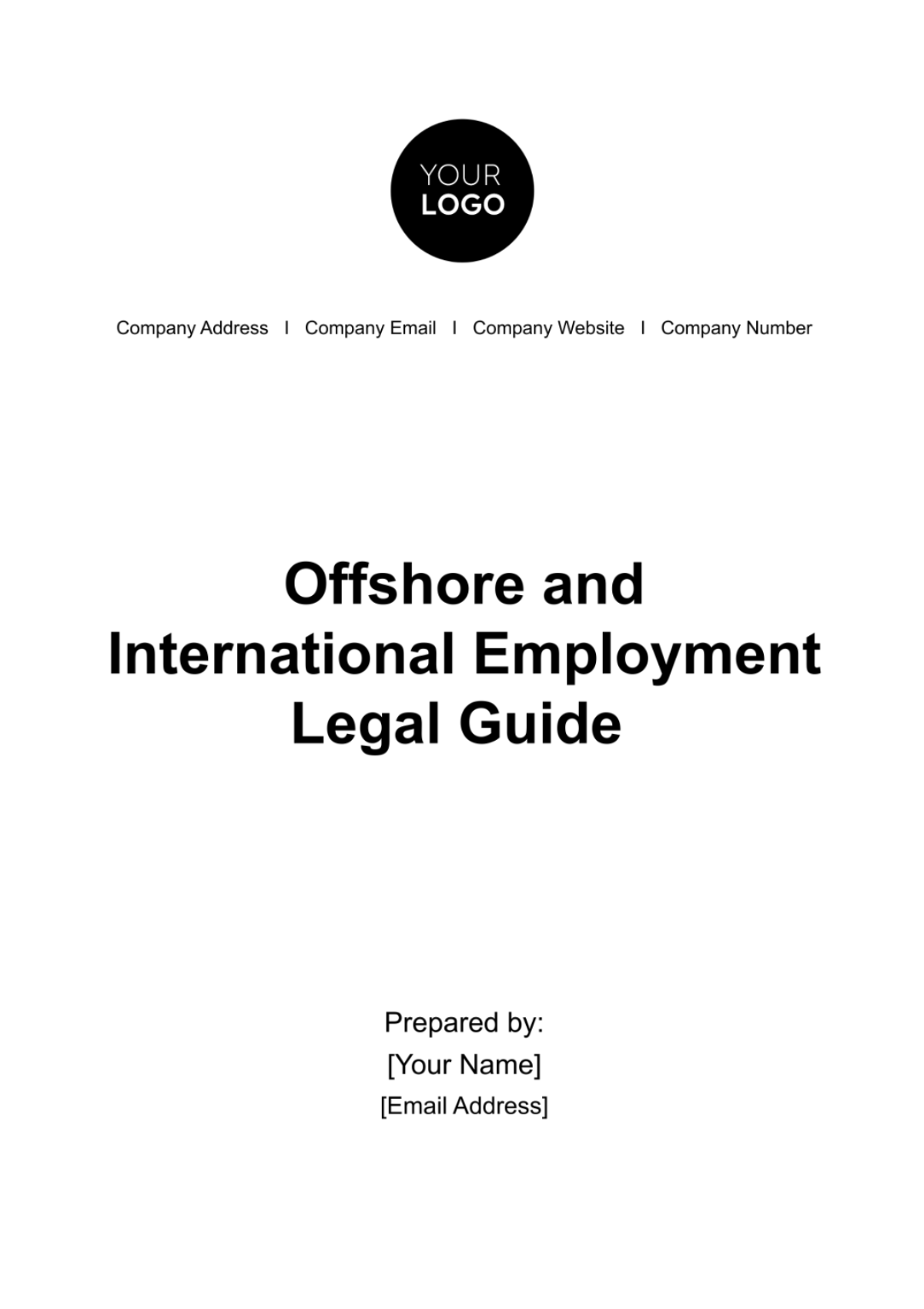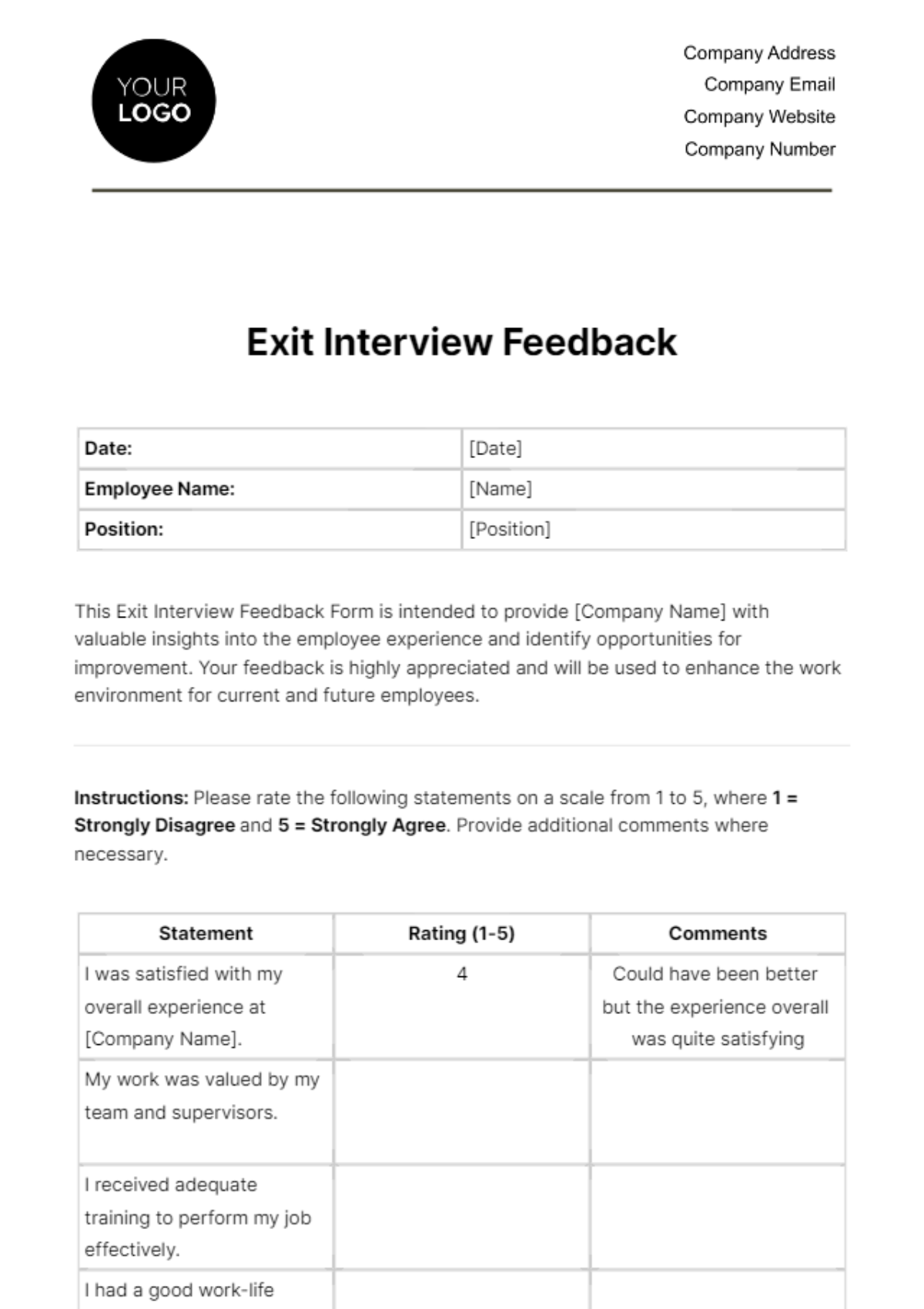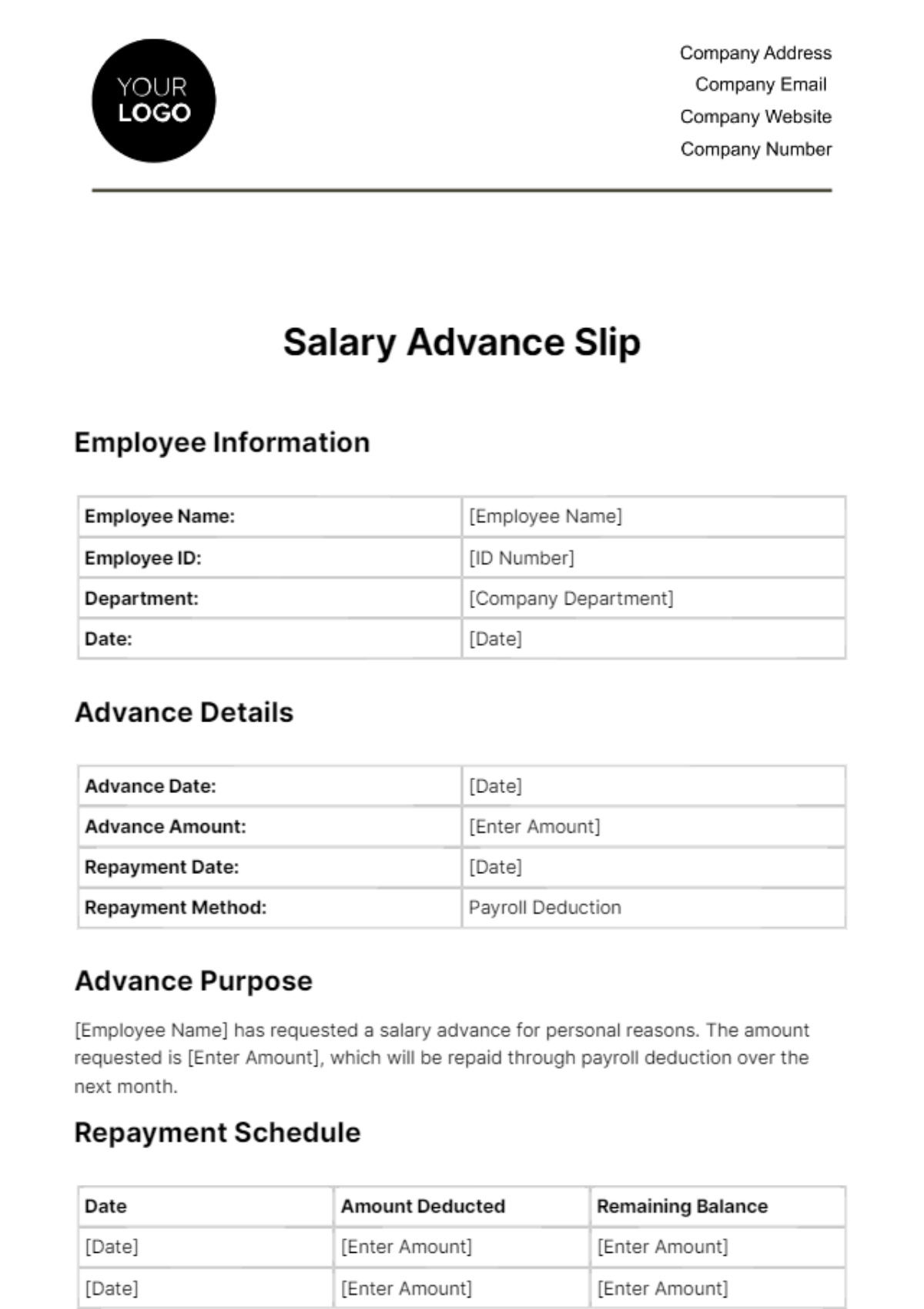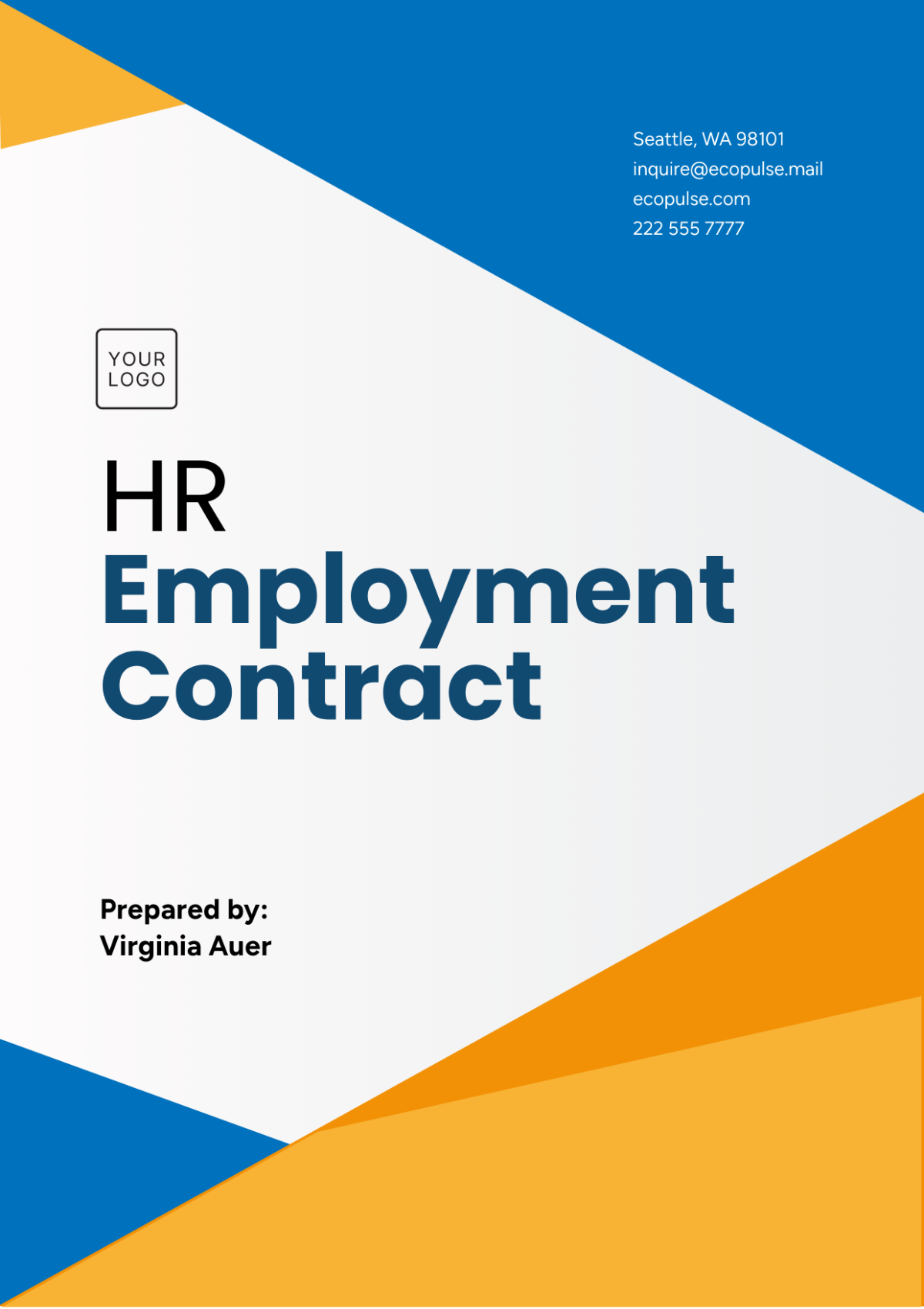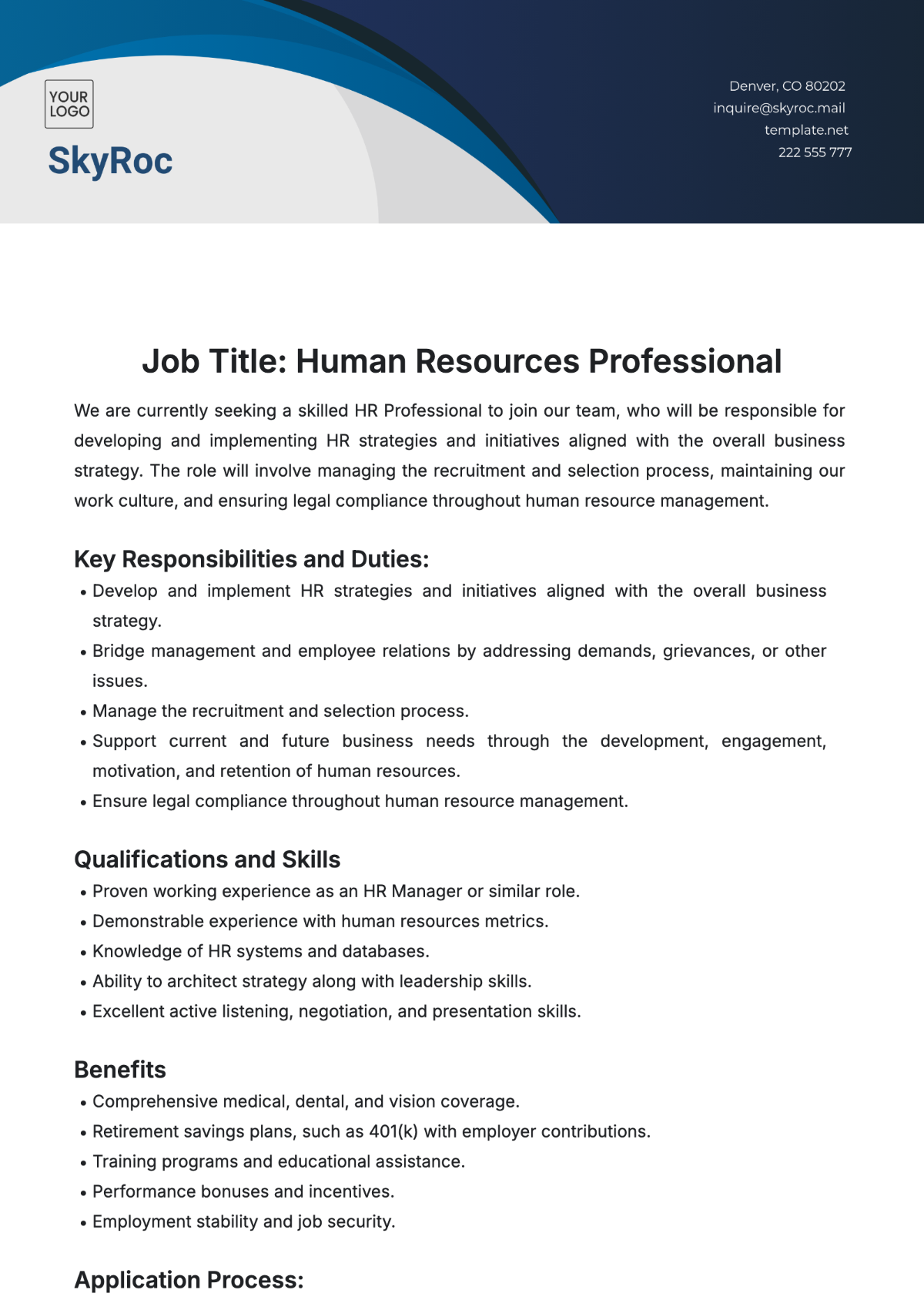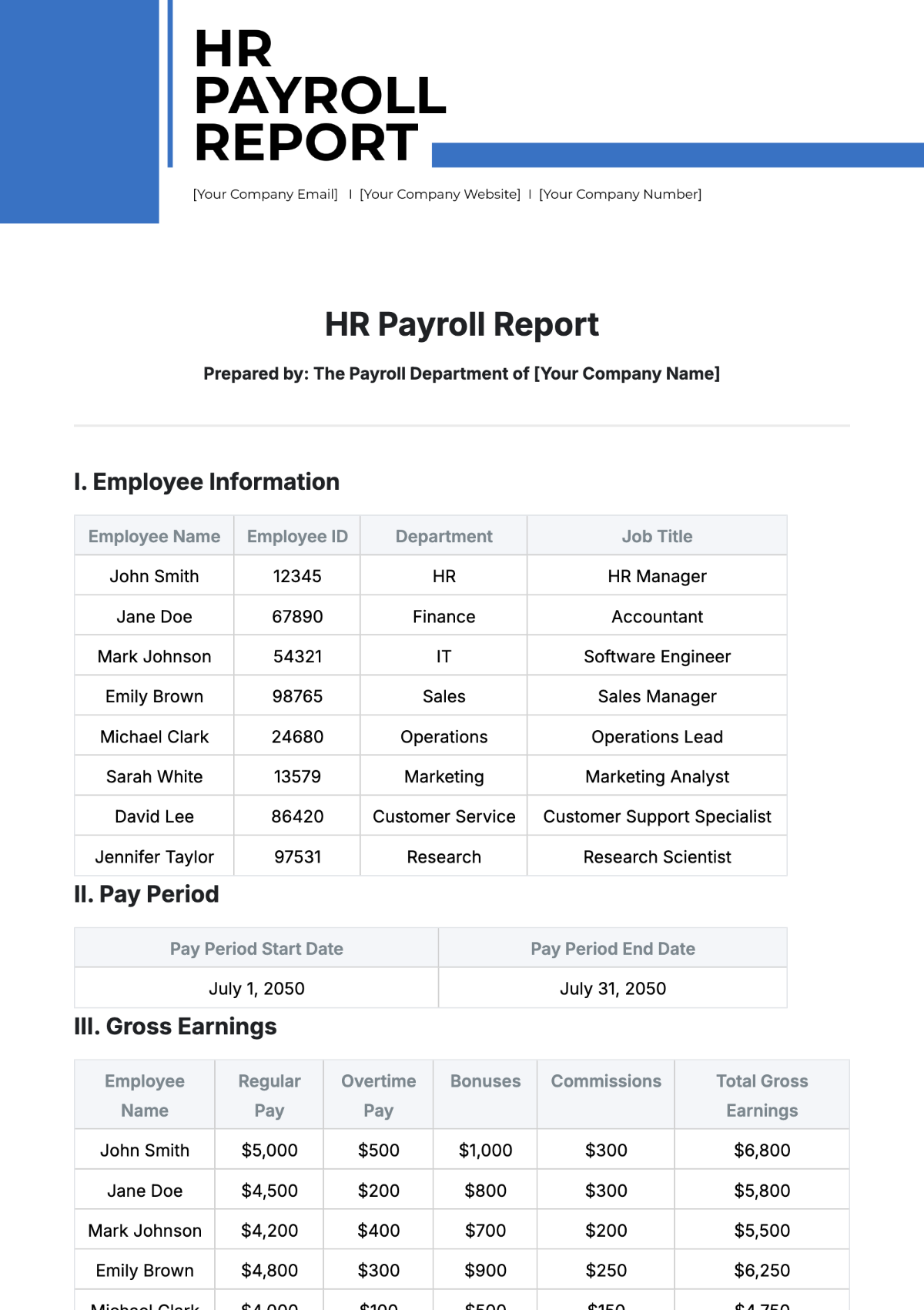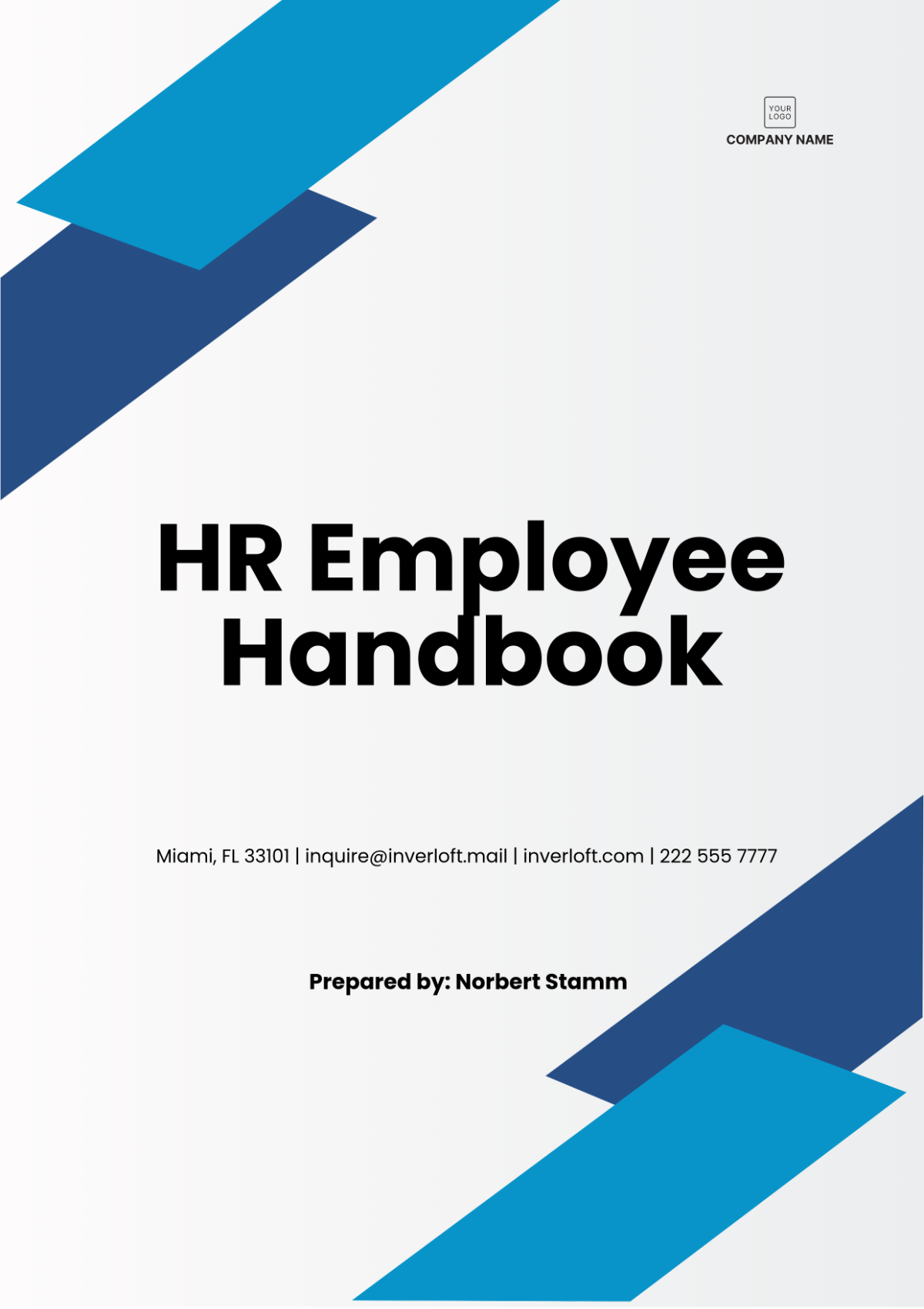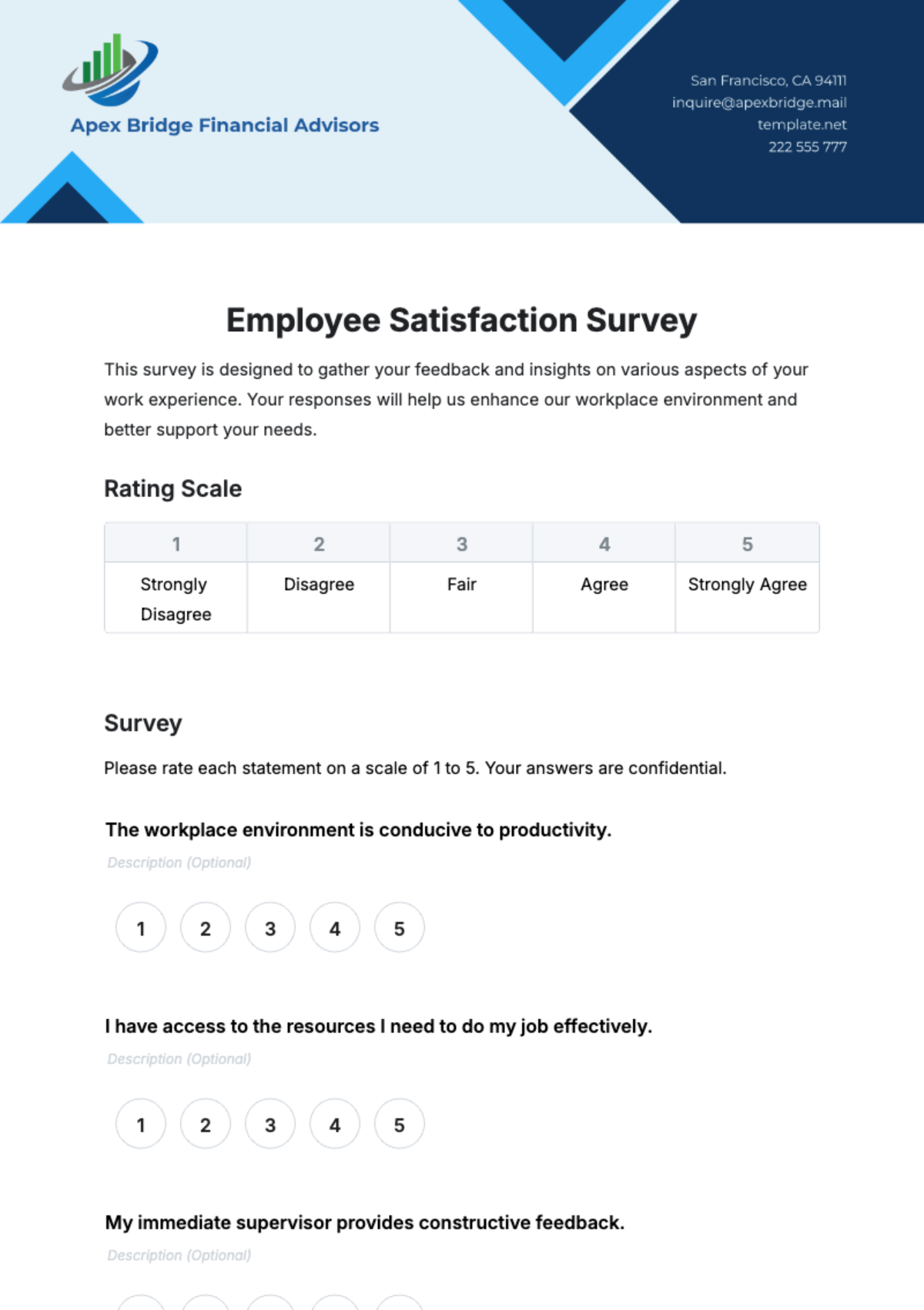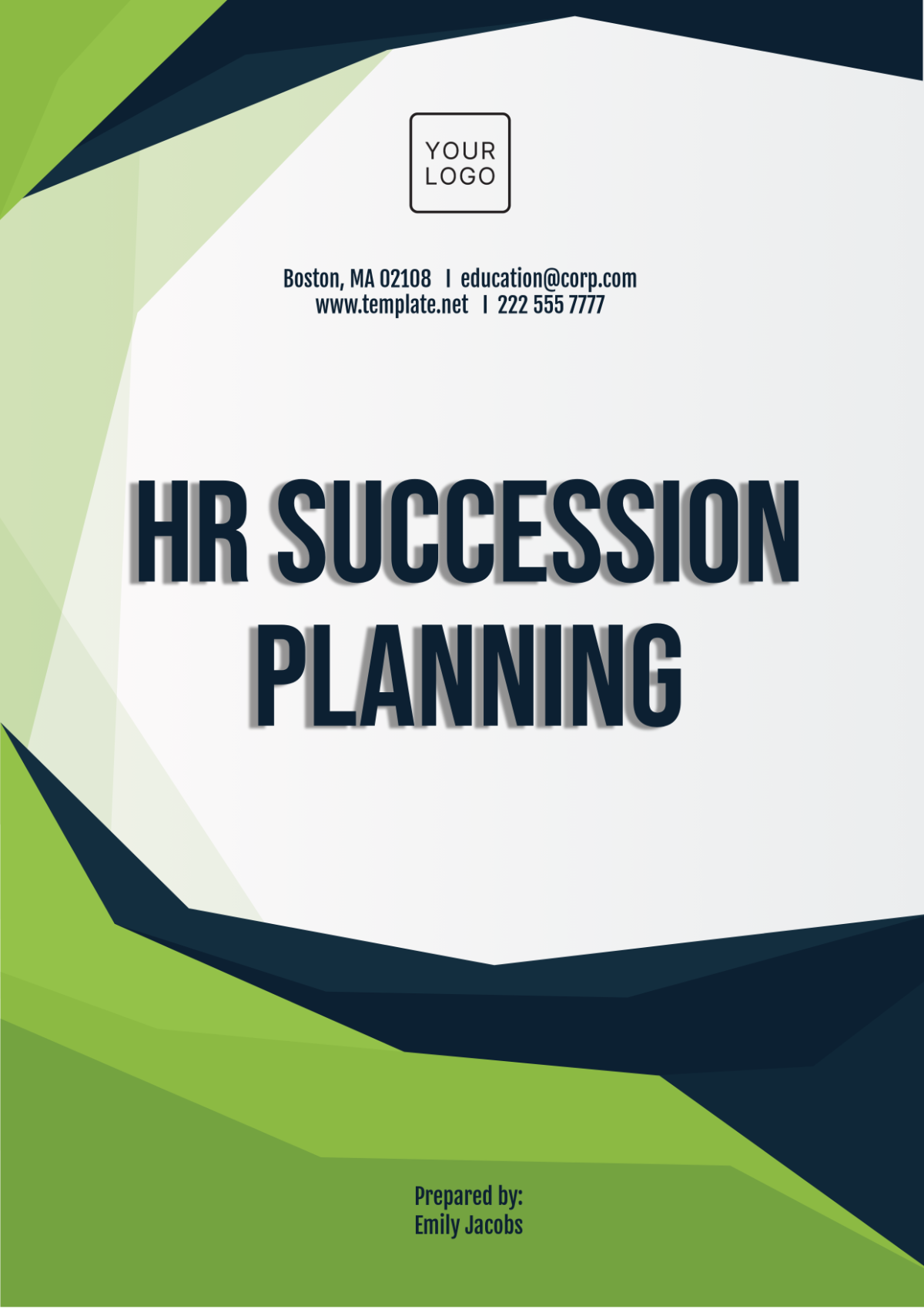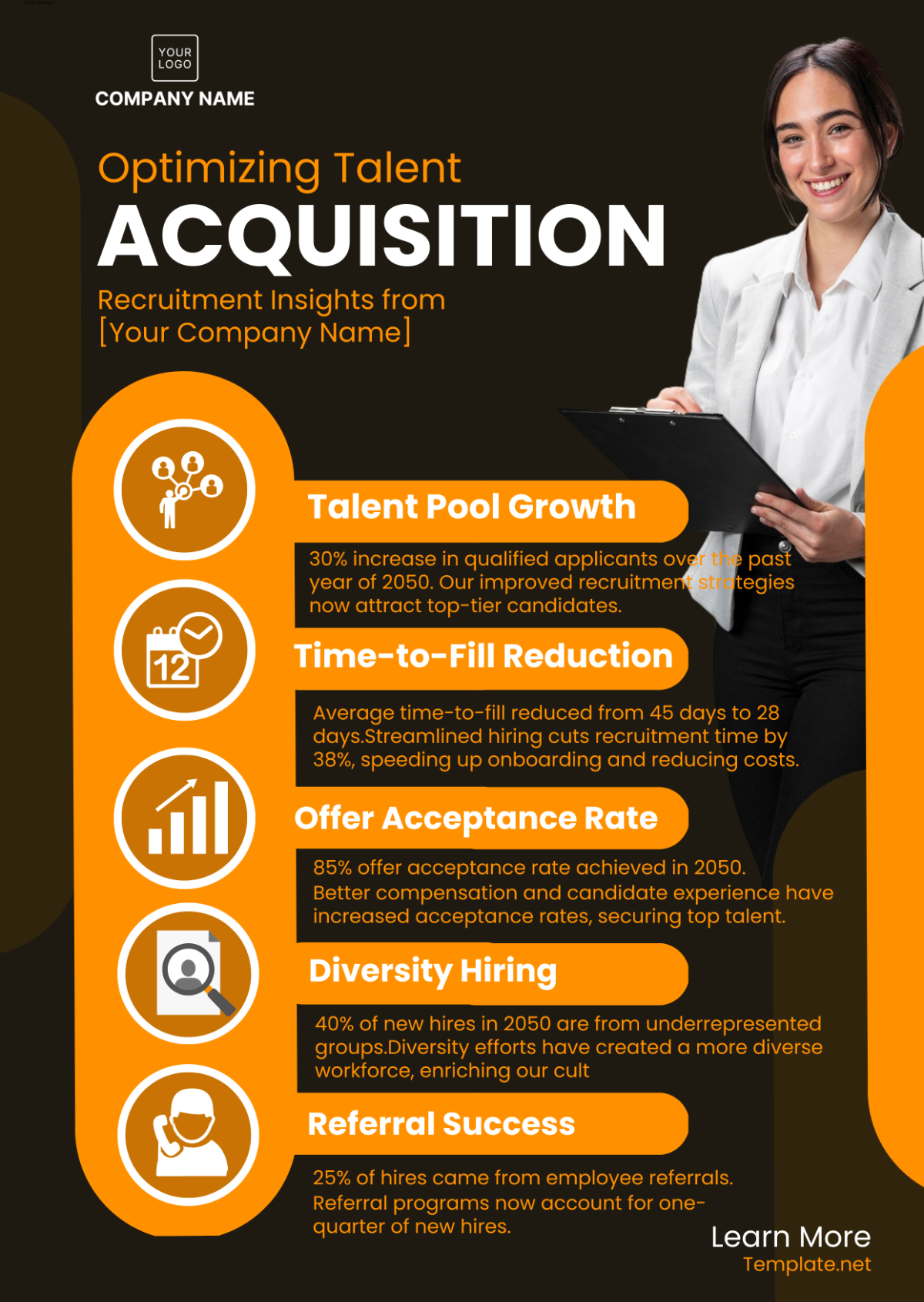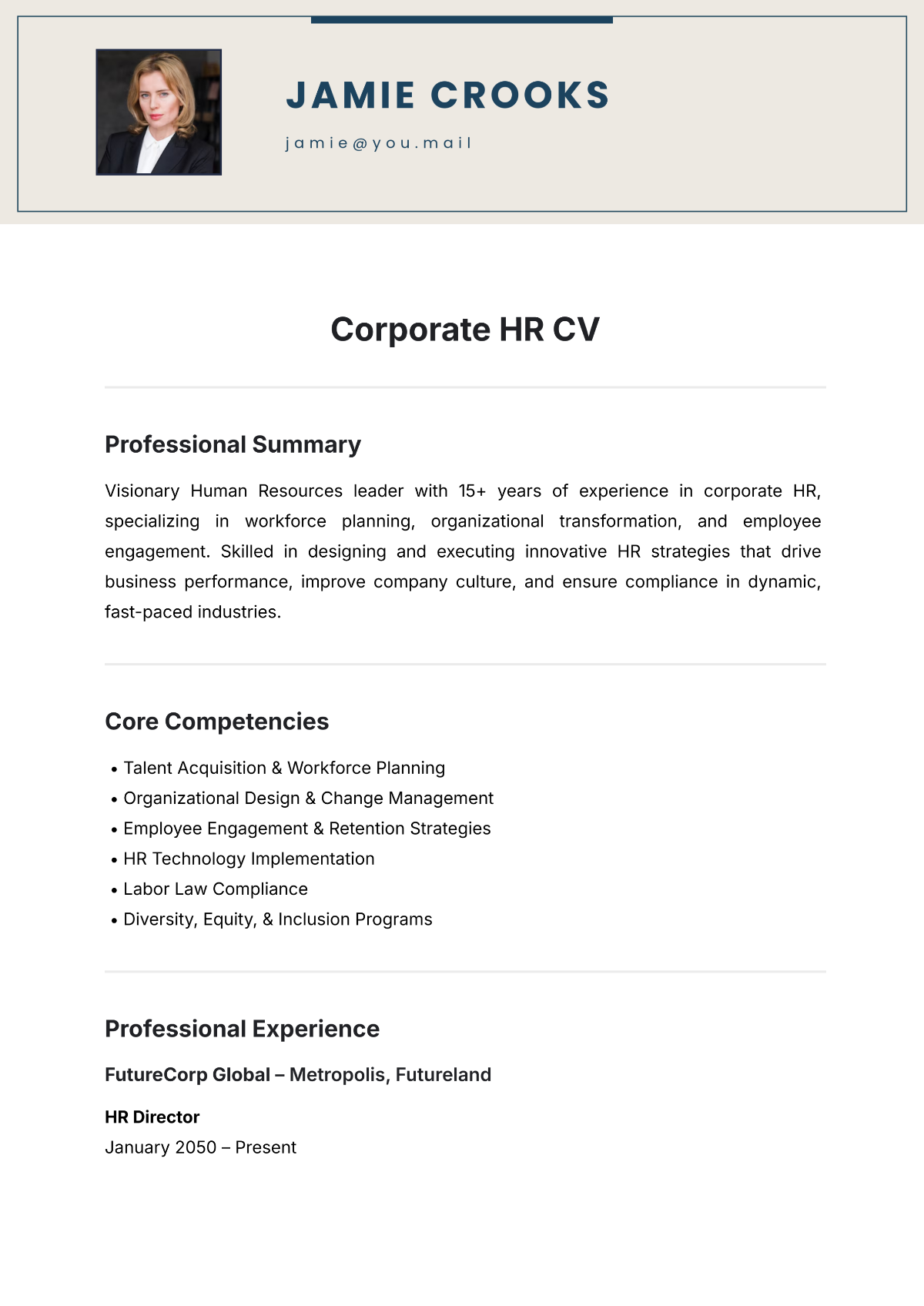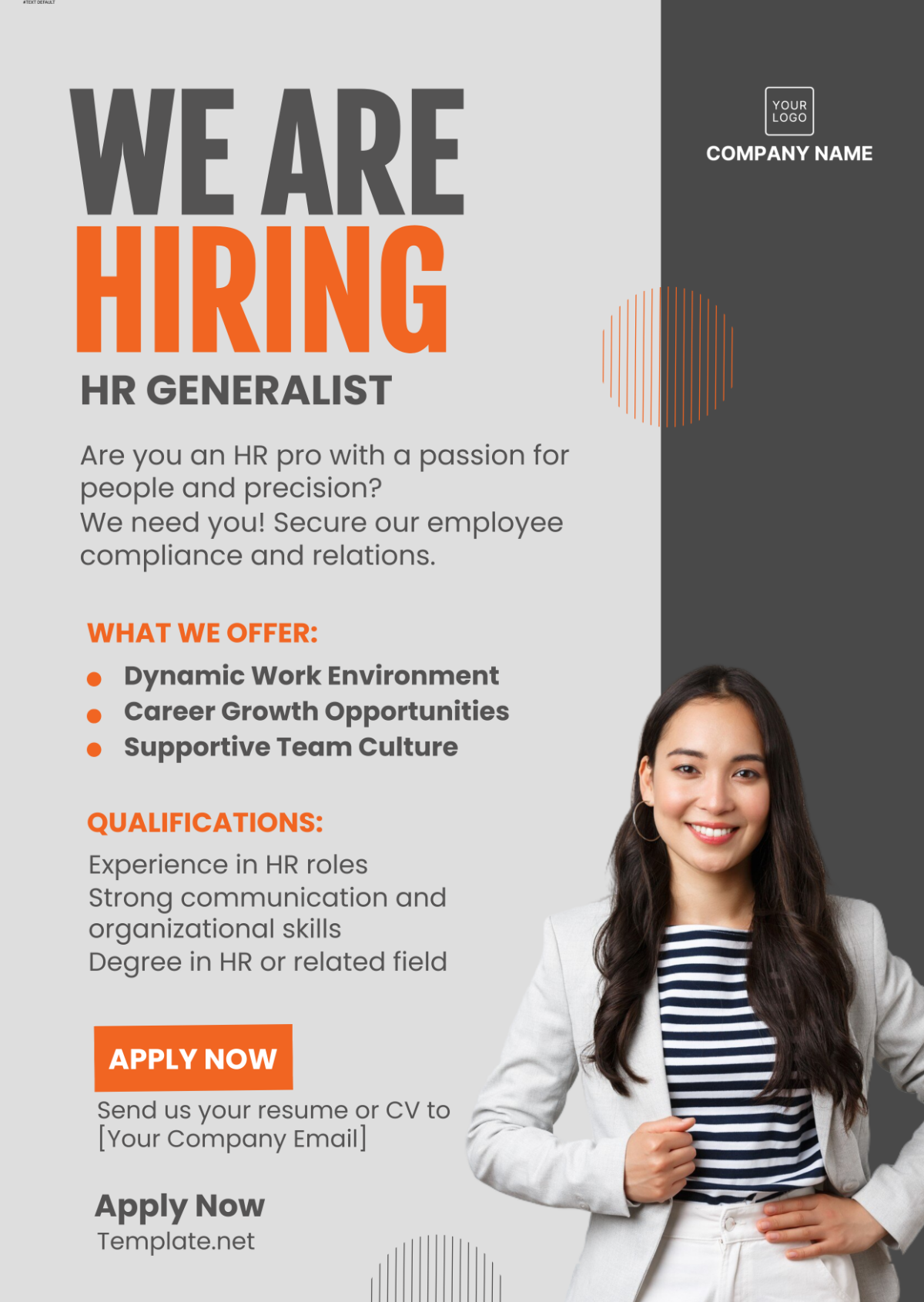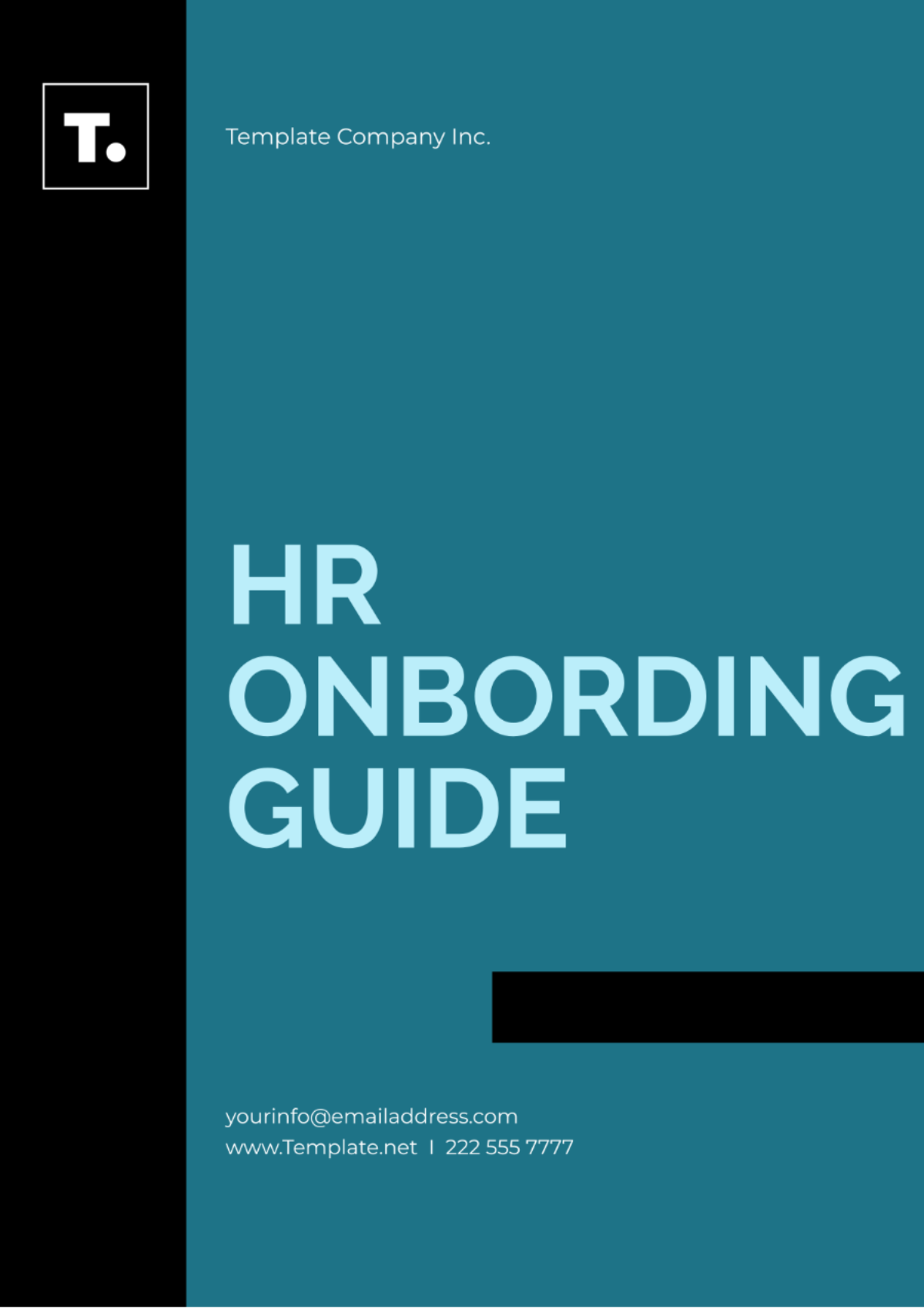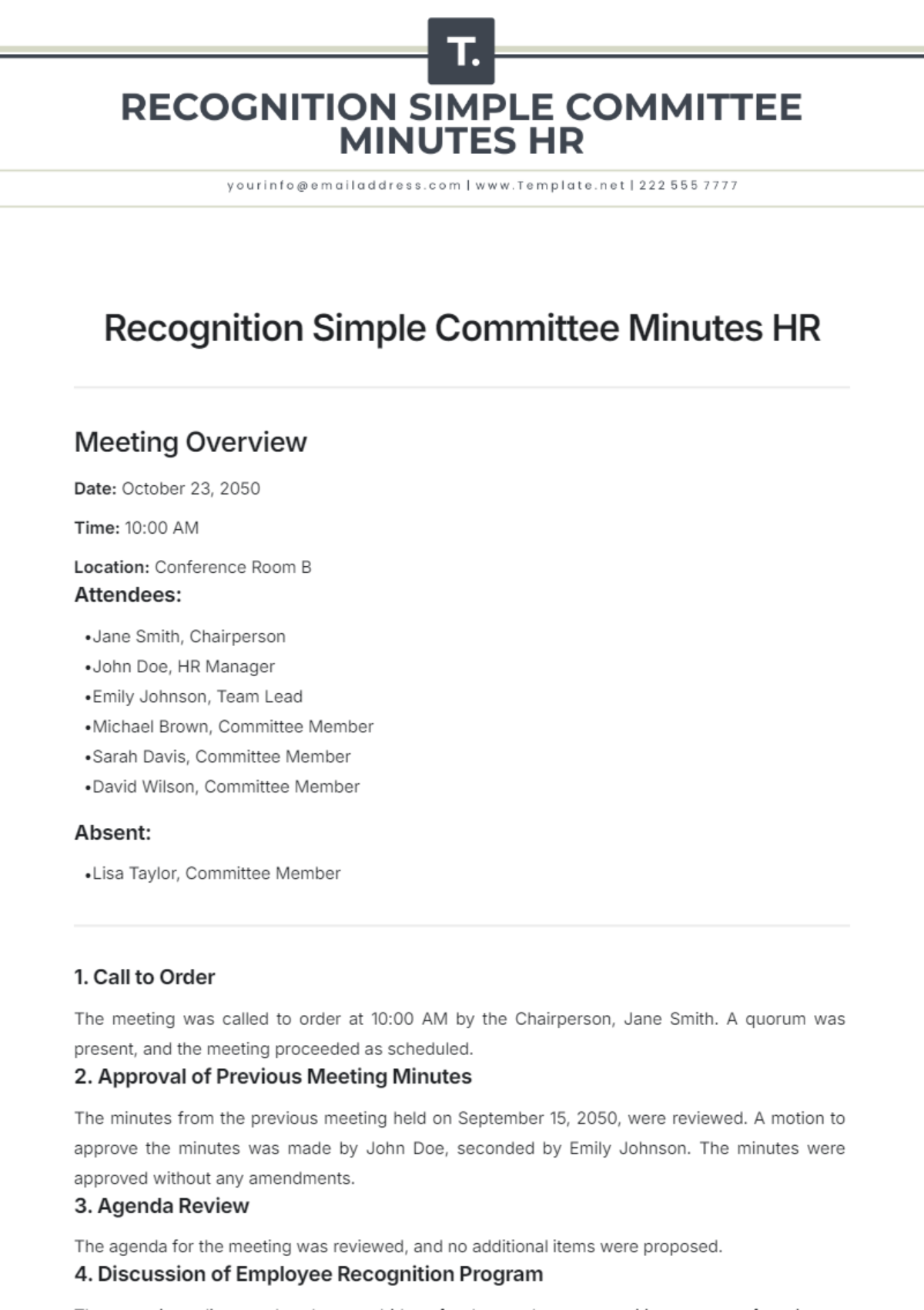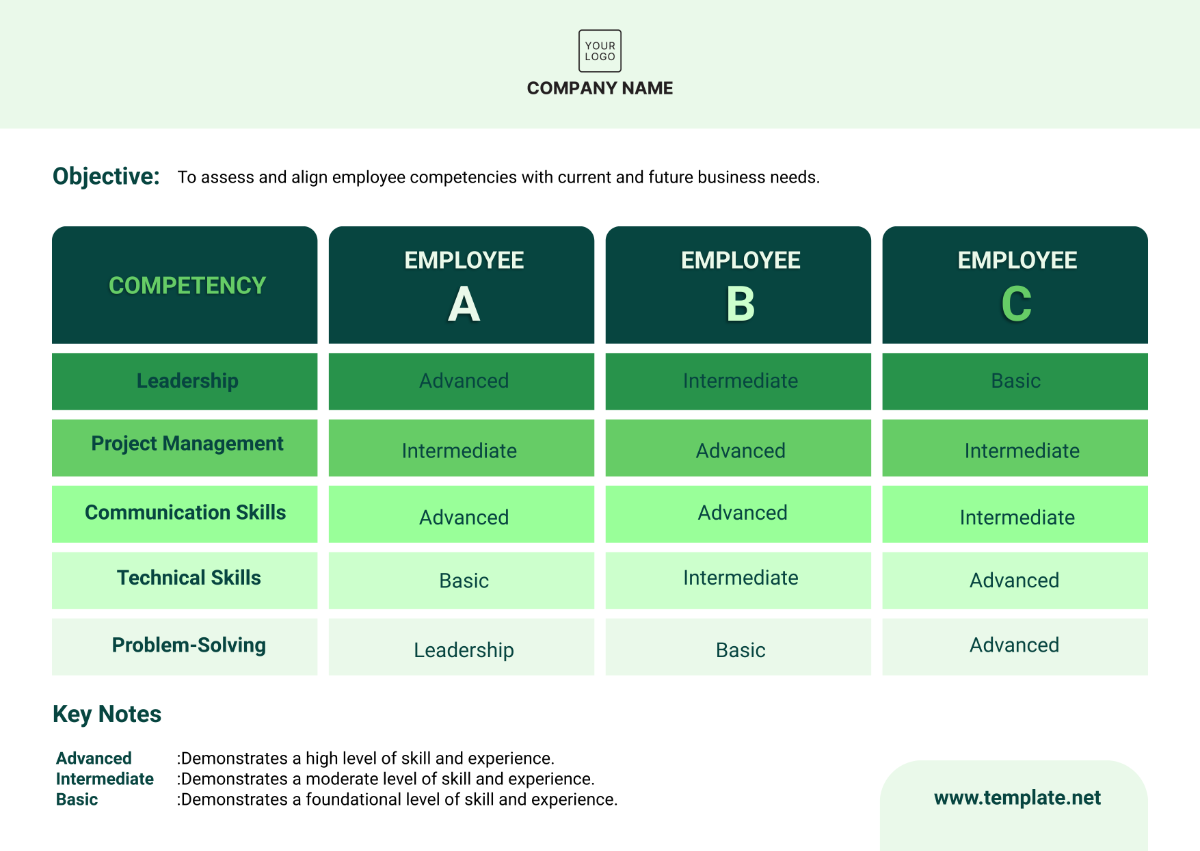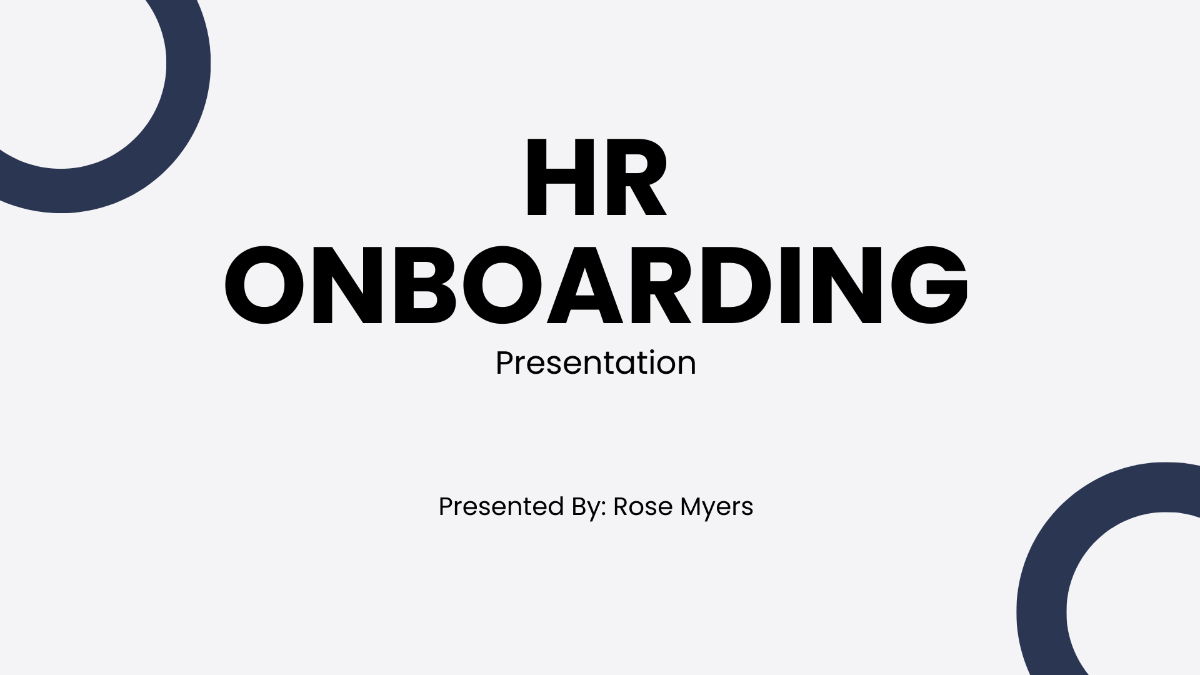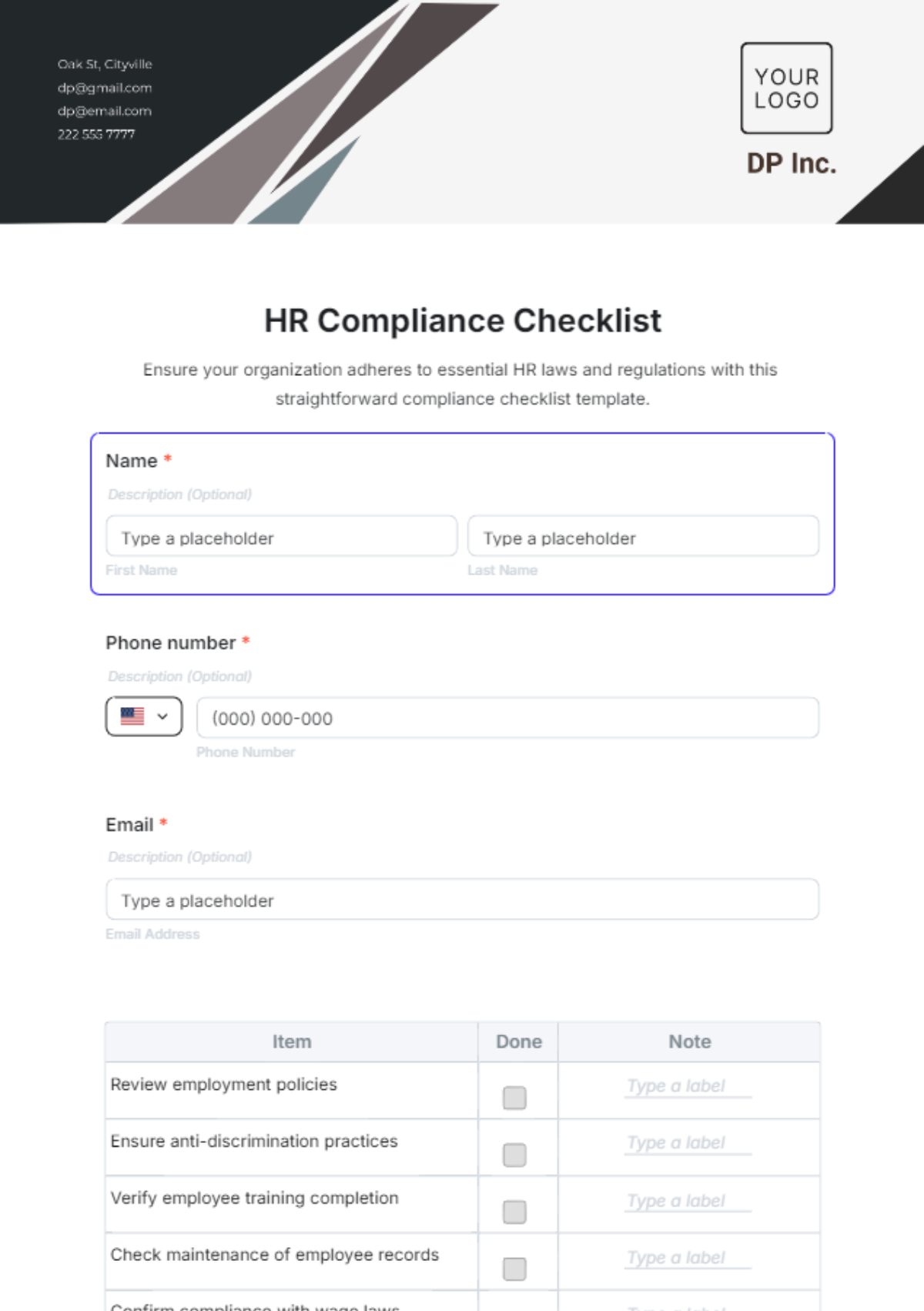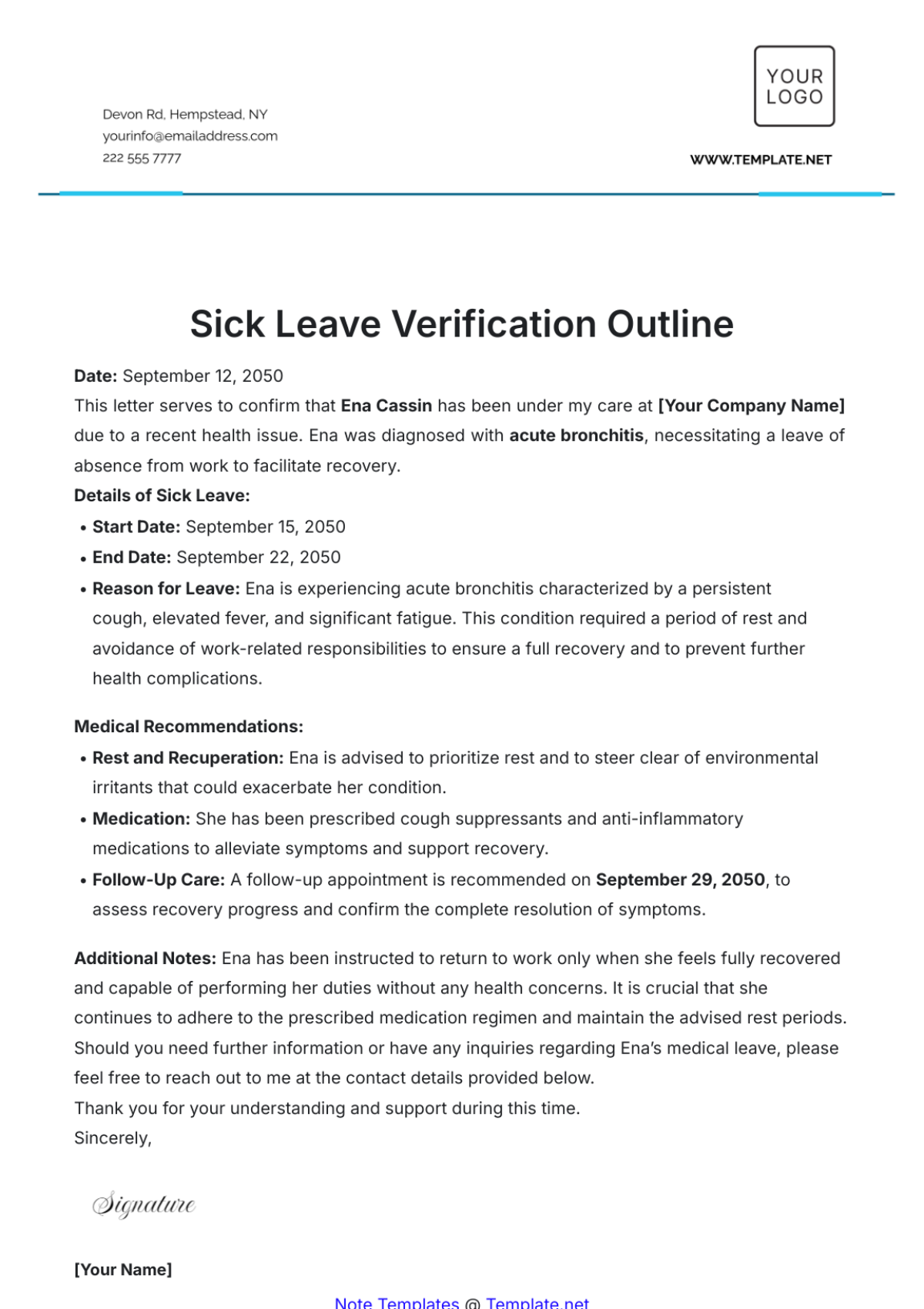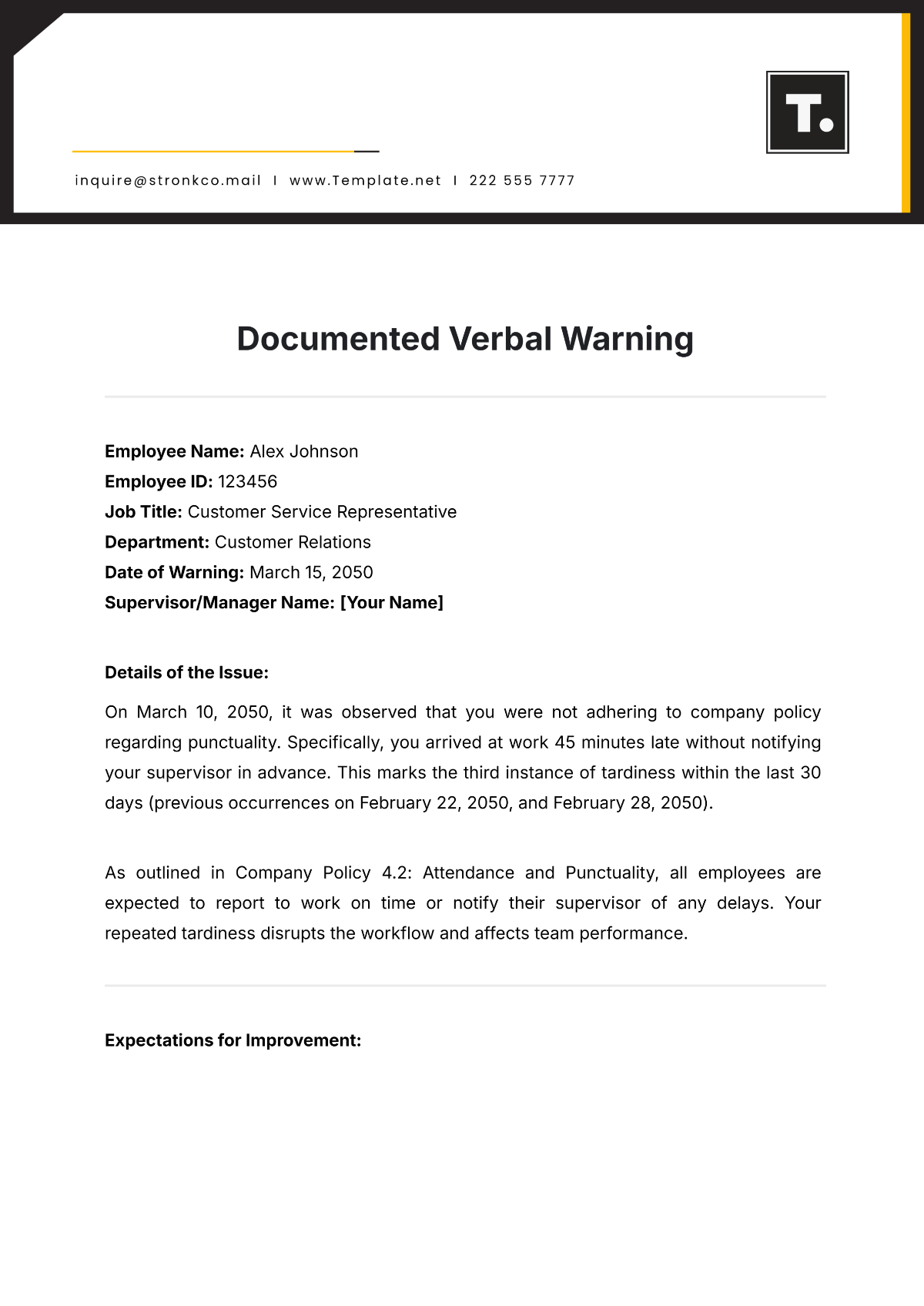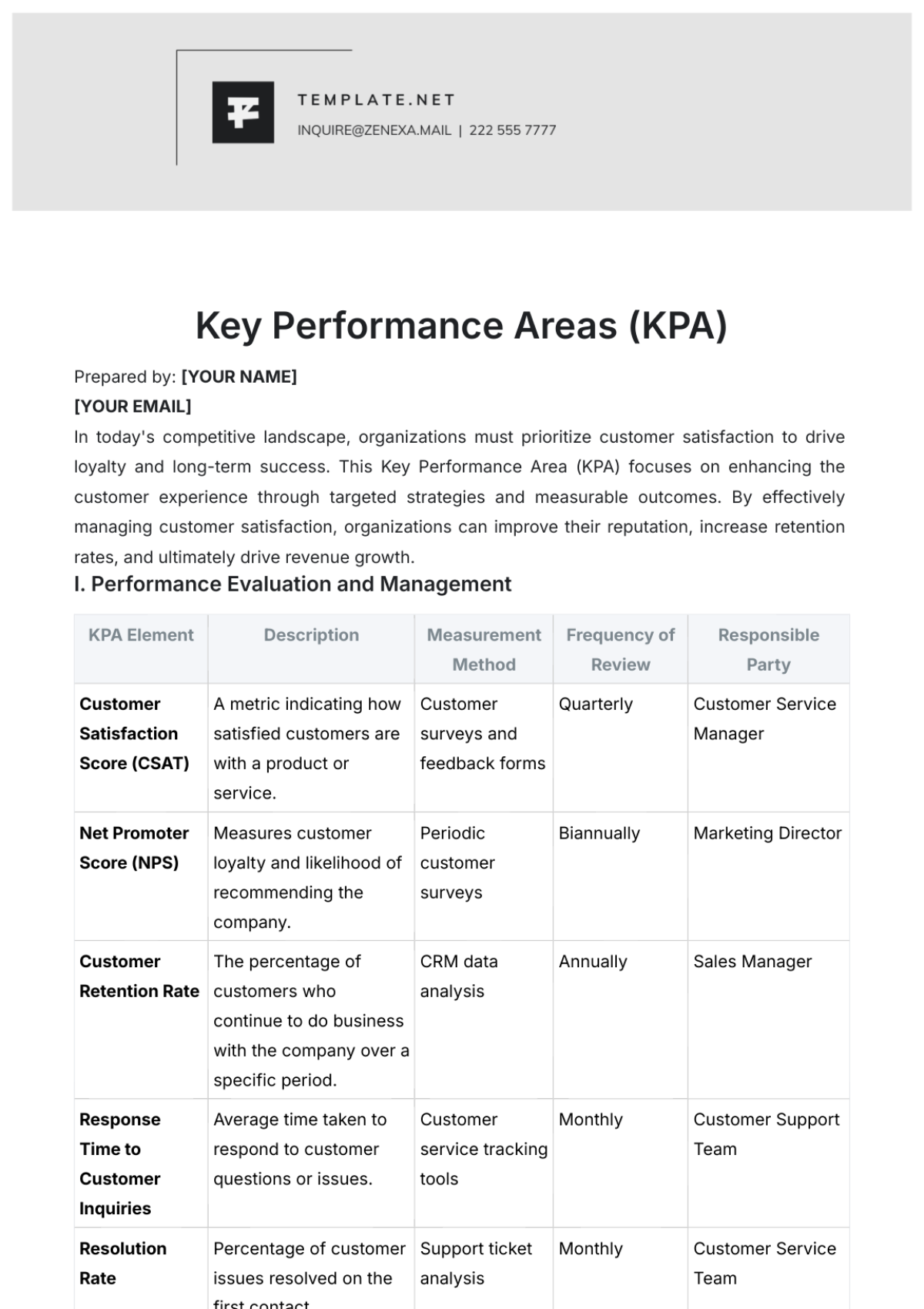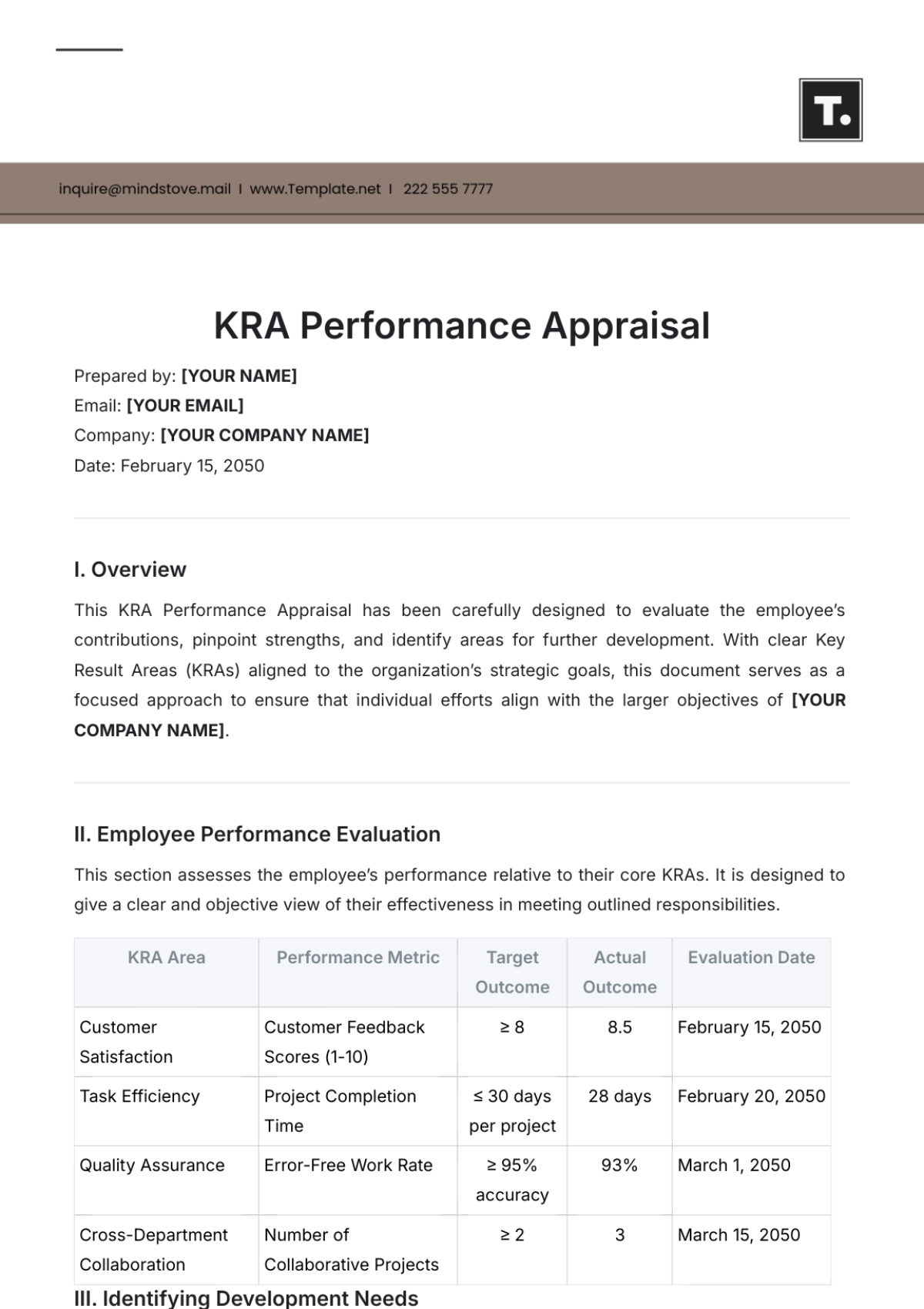TECHNICAL ROLE TESTING GUIDELINES HR
Overview
Objective
The primary objective of the Technical Role Testing Guidelines is to establish a standardized and effective process for evaluating candidates seeking technical roles within [Your Company Name]. This process aims to identify candidates who possess the requisite technical skills, knowledge, and competencies necessary to excel in their designated positions.
Rationale
As a forward-looking organization, [Your Company Name] recognizes the pivotal role that its technical workforce plays in driving innovation and achieving business objectives. It is essential to ensure that candidates selected for technical positions not only meet the technical requirements but also align with the company's values, culture, and long-term goals.
Benefits
Benefit | Description |
Consistency | Provides a consistent and transparent evaluation process for all technical role candidates. |
Quality Assurance | Ensures that only the most qualified individuals are chosen for technical roles. |
Cultural Fit | Assesses candidates for alignment with [Your Company Name]'s values and culture. |
Roles and Responsibilities
HR Department
Responsibility | Description |
Coordinate and schedule technical assessments | The HR department will be responsible for scheduling assessments, ensuring candidates are assessed promptly. |
Maintain records of candidates' assessments | Thoroughly documenting candidate assessments for transparency and historical reference. |
Communicate with candidates | HR will facilitate communication with candidates, ensuring they are well-informed and comfortable with the procedures. |
Hiring Manager
Responsibility | Description |
Define the technical skills and competencies required | Collaborating with HR to outline specific technical skills and competencies needed for the role being hired. |
Participate in the assessment process | Actively participating in the assessment process, including conducting interviews and providing input for the final evaluation. |
Make final hiring decisions | Using assessment results and input from technical interviewers to make final hiring decisions for technical positions. |
Technical Interviewers
Responsibility | Description |
Conduct technical skills assessments | Performing assessments and interviews, focusing on evaluating candidates' technical knowledge and expertise. |
Evaluate candidates based on criteria | Using predefined evaluation criteria to assess candidates consistently and fairly. |
Provide feedback to the hiring manager | Sharing assessment results and feedback with the hiring manager to aid in the decision-making process. |
Overall Collaboration
Collaboration among HR, hiring managers, and technical interviewers is crucial to ensure that the evaluation process is comprehensive and aligned with [Company Name]'s goals.
Testing Procedures
Technical Skills Assessment
Technical Skills Assessment
The Technical Skills Assessment is a critical component of the evaluation process for technical roles at [Company Name]. This assessment aims to gauge candidates' technical expertise and proficiency in areas directly related to the role they are applying for.
Methods of Assessment
The Technical Skills Assessment may comprise various assessment methods, including:
Assessment Method | Description |
Written Tests | Evaluate theoretical knowledge and problem-solving abilities. |
Coding Challenges | Assess coding skills and logical reasoning for software positions. |
Technical Quizzes | Test knowledge of specific technical topics relevant to the role. |
Customization
The assessment methods will be tailored to the specific requirements of each technical role to ensure that candidates are tested on skills directly applicable to their job responsibilities.
Behavioral Interview
Behavioral Interview
In addition to assessing technical competencies, [Company Name] values behavioral attributes such as teamwork, communication skills, adaptability, and cultural fit. The Behavioral Interview is designed to evaluate these soft skills.
Scenario-Based Questions
Interviewers will ask scenario-based questions that encourage candidates to provide examples from their past experiences. This helps assess how candidates handle real-world situations and interact with colleagues and superiors.
Assessment of Soft Skills
The Behavioral Interview aims to assess candidates' soft skills, including:
Soft Skill | Description |
Problem-Solving | Ability to handle challenges and make informed decisions. |
Teamwork and Collaboration | Skills in working effectively with others. |
Cultural Fit | Alignment with [Company Name]'s values and culture. |
Practical Test
Practical Test
Some technical positions may require candidates to complete a Practical Test or project to demonstrate their ability to apply their technical knowledge in a practical setting.
Test Relevance
The Practical Test will be designed to align with the specific job responsibilities of the role. This ensures that candidates are evaluated on their ability to perform tasks directly related to their prospective position.
Testing Environment
Depending on the role, the Practical Test may be conducted on-site, where candidates are given access to necessary tools and resources, or remotely, where candidates complete the test in a simulated work environment.
Evaluation Criteria
Comprehensive Evaluation Criteria
To ensure a thorough assessment of candidates, [Company Name] has established comprehensive evaluation criteria tailored to each technical role. These criteria are designed to measure candidates' qualifications, skills, and potential contributions to the company.
Rating System
Candidates will be evaluated using a structured rating system that allows interviewers to assign scores for various aspects of their performance. The rating system typically includes categories such as technical knowledge, problem-solving, soft skills, and overall fit for the role.
Input from Technical Interviewers
The assessment process heavily relies on the input from technical interviewers who participate in evaluating candidates. These interviewers will provide detailed feedback and scores based on their observations during the assessment.
Holistic Assessment
The evaluation process considers both the technical skills assessed in the Technical Skills Assessment and the behavioral attributes assessed in the Behavioral Interview. This holistic approach ensures that candidates are evaluated comprehensively.
Documentation
Detailed Documentation
Maintaining accurate and detailed documentation of the assessment process is essential. HR personnel are responsible for recording and organizing all assessment-related information, including candidate profiles, assessment scores, interview notes, and feedback.
Data Security
To ensure data security and confidentiality, all documentation will be stored in secure digital systems or physical files with restricted access. Access to assessment records will be limited to authorized personnel involved in the hiring process.
Record Retention
[Company Name] will establish a record retention policy to determine how long assessment records should be kept on file. This policy will comply with relevant legal and regulatory requirements.
Feedback and Communication
Timely Communication
HR will communicate with candidates regarding their assessment results in a timely and considerate manner. Candidates who pass the assessment will be informed of the next steps in the hiring process, while those who do not meet the requirements will receive constructive feedback.
Feedback Requests
Candidates who seek feedback on their performance during the assessment will have the opportunity to request it. HR will facilitate the process of providing feedback from the technical interviewers.
Transparent Communication
[Your Company Name] is committed to transparent communication with candidates throughout the assessment process. HR will address any questions or concerns candidates may have about the assessment process.
Conclusion
Striving for Excellence
[Your Company Name] recognizes the critical importance of selecting the right talent for technical roles to drive innovation and success. These Technical Role Testing Guidelines are designed to ensure that the company consistently identifies and hires top-tier candidates who will contribute to its growth and competitiveness.
Continuous Improvement
[Your Company Name] is dedicated to continuous improvement in its assessment process. Feedback from candidates, hiring managers, and technical interviewers will be used to refine and enhance these guidelines over time, ensuring that they remain effective and aligned with the company's evolving needs.
